
1 SCROLL 2024

Cover Artwork
Front Cover •
Britt Nordquist | Azure Escape, digital photograph
Back Cover •
Britt Nordquist | Lazuline Dreams, digital photograph
Inside Front •
Phoebe Cohen | Oil and water, digital photograph
Inside Back (left to right) •
Nell Choi | Cerulean Currents,terra cotta
Marjan McNulty | Lapis Dreams, stoneware
Kira Bardin | Warped Reality, stoneware
Mission Statement
The mission of the Holton-Arms School is to cultivate the unique potential of young women through the “education not only of the mind, but of the soul and spirit.”
Philosophy
Scroll features writings by students of the Holton-Arms School. Many pieces come from classroom assignments across grades 9-12; others come from writing assignments at Scroll Club meetings. In making final selections for the magazine, the editorial staff looks for original, powerful, insightful work as well as a range of genres. They choose artwork that exemplifies the best work of the artists and that also speaks to the ideas or images of the written pieces.
Scroll was produced in the Student Publications Room of the Holton-Arms School. © 2024
2
SCROLL 2024
Volume LXX
editors-in-chief
Alicja Mazurkiewicz • Claire Buchanan
assistant editors
Eliza Dorton • Phoebe Cohen
• Leela Cohen • Betty Rose Bean
• Audrey O’Beirne
photo editor
Britt Nordquist
club presidents
Audrey Meierhoefer • Margaret Sussmann
adviser
Ms. Melinda Salata
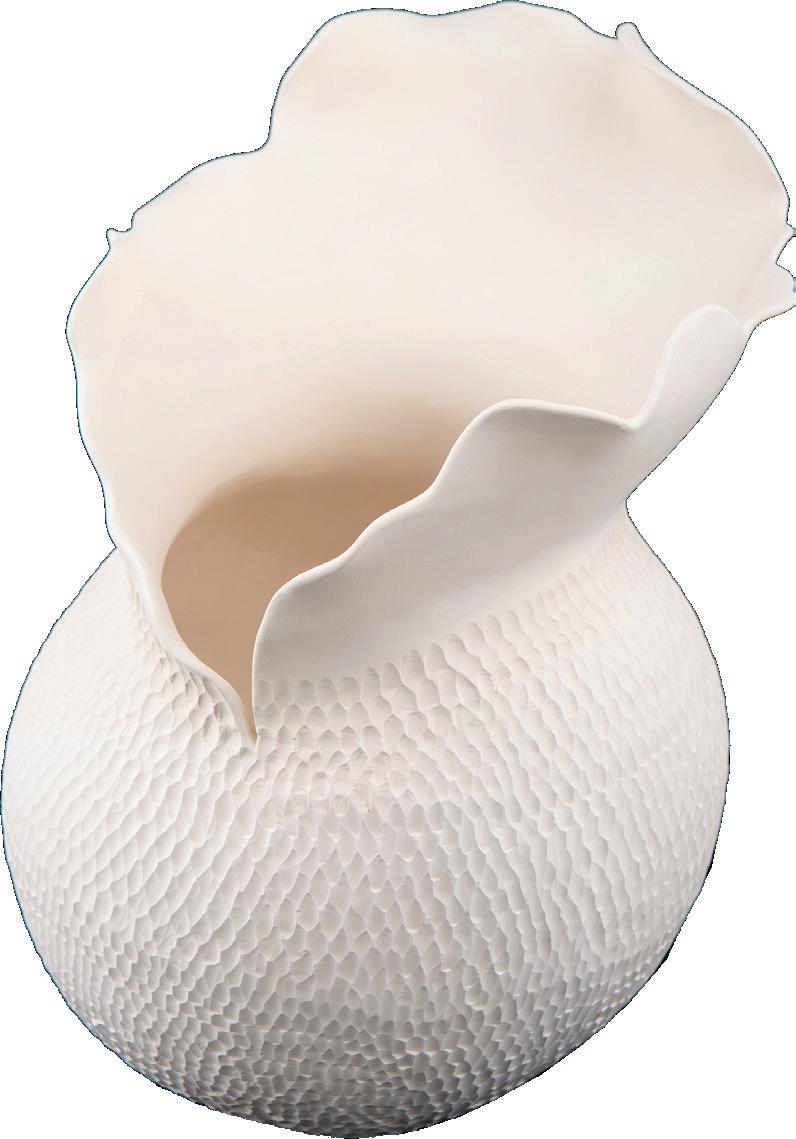
Isabelle Evans | Unfurling Vase, earthenware
The Holton-Arms School 7303 River Road • Bethesda, Maryland 20817
3
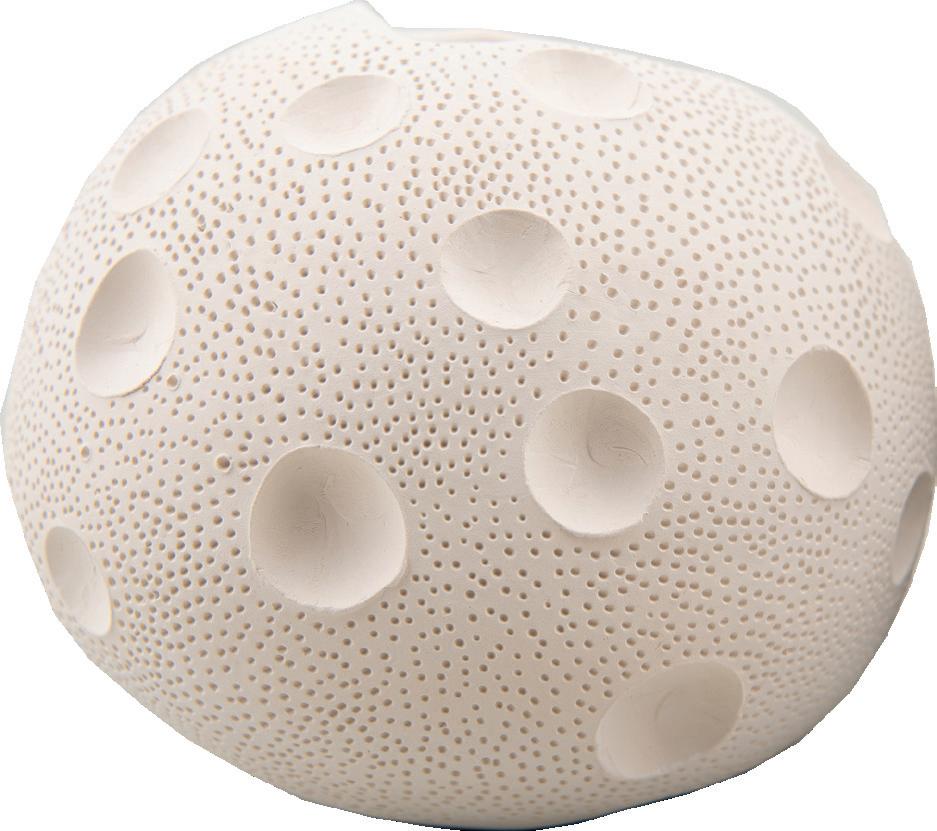
Authors haikus & tankas Lila Brody ................. 63 Claire Buchanan (3) ....... 62, 63 Mia Gyening ............... 62 Audrey O’Beirne ............ 62 Julia Ryan (3) 62, 63 Natalie Tan ................ 63 fiction Janey Rollenhagen 44 Julia Ryan ................. 73 personal narrative Sophia King ................ 8 Sascha Rhein ............... 12 Sascha Rhein ............... 19 Ella Moore................. 22 Emme Poole 28 Safiya Kurbanova ........... 31 Claire Buchanan ............ 34 Astro Getahun .............. 40 Kendall Adams ............. 47 Charlotte Lipman ........... 53 Sophia King ............... 59 Lucy Berry ................ 65 Charlotte Lipman ........... 71 Caroline Serenyi 73 Lucia Noto ................ Caroline Serenyi ............ poetry Julia Ryan .................. 7 Elise Gledhill ............... 14 Josie Wenchel .............. 15 Lucy Berry ................ 16 Leela Cohen 21 Madison Javdan ............. 26 Phoebe Cohen .............. 27 Avery Phillips .............. 32 Laila Clarke ................ 38 Astro Getahun .............. 42 Anneka Zimmermann ....... 43 Mary Claire Gilbert ......... 50 Julia Ryan ................. 56 Erin Guven 57 Caroline Goldstein .......... 61 Julia Ryan ................. 67 Cecily Brooks .............. 69 Charlotte Lipman ........... 70 Lucia Noto ................ 77 Kayin Bejide ............... 80 Sophia Lekeufack ........... 82 4
Armeeta Moghisi | Study in White and Brown, earthenware
Cecilia Holdo ............. 6-7
Helen Binner ................ 9
Lilly Jamshidi .............. 17
Lilly Jamshidi .............. 18
Cecilia Holdo 29
Sophia Burton .............. 33
Kennedy Kittrell ............ 34
Kennedy Hall .............. 39
Averill Simone........... 44-45
Lana Cvijetnovic ............ 46
Cecilia Holdo ........... 50-51
Angela Mastrostefano ........ 52
Ava Barber ................. 56
Mary Claire Gilbert 57
Cecilia Holdo ........... 64-65
Ella Ross .................. 70 ceramics
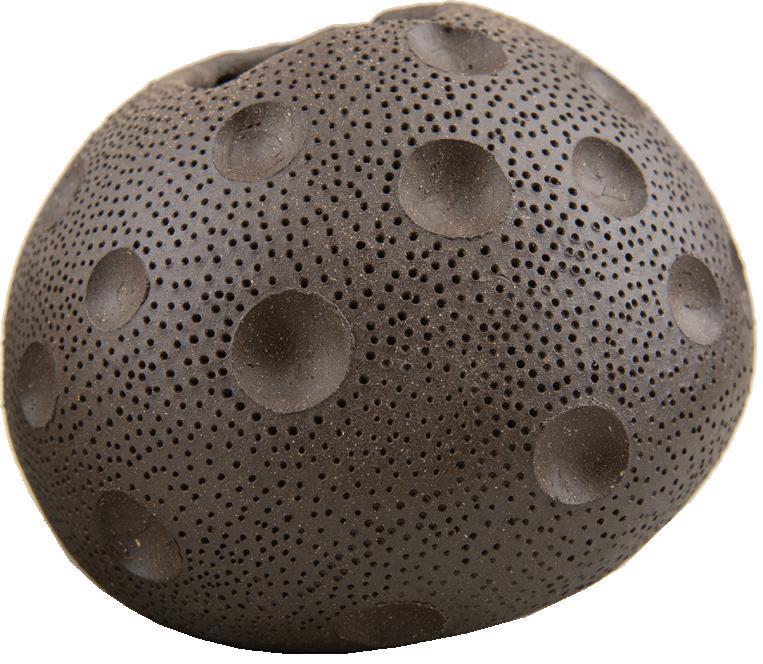
Isabelle Evans ............... 3
Armeeta Moghisi .......... 4, 5
Audrey Meierhoefer ......... 10
Sabine Rana ............... 11
Jincheng Zhao 15
Reese Udler ............. 28, 30
Safiya Kurbanova ........... 31
Zahra Rasheed ............. 37
Lucy Hagen ................ 41
Kayin Bejide ............... 49
Sedona Hawkins ............ 54
Grace Westerberg 55
Jincheng Zhao .............. 60
Sophia Royer .............. 61
Leela Cohen ............ 62-63
Ashley Federowicz 66
Leela Cohen ............... 81
Nell Choi ................. 83
Marjan McNulty ............ 83
Kira Bardin ................ 83 collage
Mary Claire Gilbert 21
Armeeta Moghisi | Study in White and Brown, stoneware
Artists photography Britt Nordquist .............. 1 Emme Poole ............... 11 Lily Wexler ................ 13 Addison Burakiewicz ........ 14 Melinda Salata 20 Zoe Nash .................. 22 Addison Burakiewicz ........ 25 Samantha Coulman .......... 26 Samantha Coulman .......... 27 Genevieve Graham .......... 40 Alina Ahmad ............ 42-43 Samantha Coulman .......... 58 Britt Nordquist ............. 67 Addison Burakiewicz 68 Rose Sussmann .......... 72-73 Rose Sussmann .......... 74-75 Sunshine Mitchell ........... 76 Alina Ahmad ............ 78-79 Rose Sussmann ............. 80 Addison Burakiewicz ........ 82 Britt Nordquist ............. 84 drawing
painting
&
5

A Vivid Place
6
Cecilia Holdo | Booze Creek, oil on canvas

The night is simple, my dream is not
I stare endlessly at a wooded grotto
Until I wake and find that
It has encroached my mind
Sought soil, taken root
And become grown, seemingly overnight
Now, I bear a forest in my mind
Its roots are my veins, its dew my blood
Deep in my lungs, I feel the comfort of a long-gone rain
I see trees crowded around a flat-grass clearing
They bow low to the wind in prayer
Grasping branches, soft-touched leaves
Peering over fresh red-top, white-stalk mushrooms
Gathered in a fairy circle atop sleepily bundled earth
All is lit by sunbeams filtered through treetops.
When I sleep at night the forest rises thick,
Yet never breaches the hilltop ring
And though the forest hides itself from my senses
I have faith in the soft scent of earthy loam
The winds strip the warm air off my skin.
The bones of the forest rattle as it draws in breath.
The air tastes of salt.
My forest never conceals itself from me
Even in my waking moments
Its simple scene rises clean from the swamp of my mind
Now, I roam the earth in ceaseless search
For such a place that I am sure exists
If not, how would I know its image?
So clearly I can see it,
How can it be anything but real?
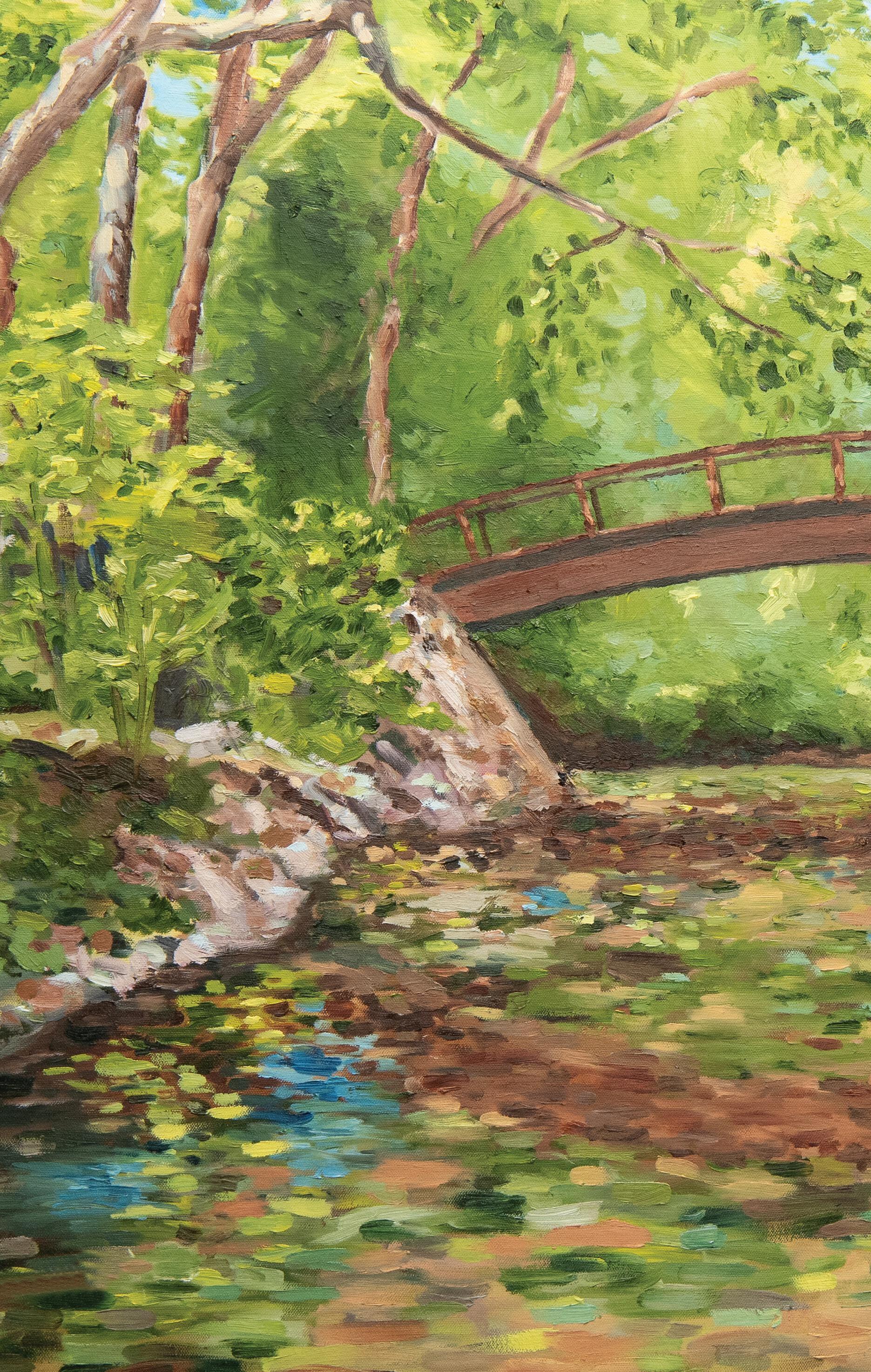 Julia Ryan
Julia Ryan
7
Title of Piece
The Price of a Playground Heist
Sophia King
author
InFirst para text
second grade, I went to the Barrie School. Like most second graders, I spent most of my time on “nature walks” and learning long-division or double-digit multiplication. (It was a Montessori school.) Going to an elementary school where I was encouraged to learn at my own pace meant that I was always able to ask my teacher whatever questions piqued my curiosity.

Patty was my homeroom teacher. She was old as dirt and tried to hide it by dyeing her short bob — which ended right around her bony, protruding cheekbones — blonde. She wore huge, cat-eyed, tortoise-shell glasses that only magnified her wrinkly face and made her look vaguely like a beetle. Her fingers were skinny and would sometimes start to tremble when she got too excited. She was way tall, so her clothes (black tunic tops and loose, flowy pants) always seemed to hang from her withering frame. Compared to the other three homeroom teachers, Patty was the best. Not just because I was her favorite student (she said so herself), either. But because Trish was boring. Her room smelled stale, and it was always sort of dark because her windows faced away from the mid-day sunlight. Unlike Patty, who taught us big, important things like density and geography, Trish read books like Sarah, Plain and Tall or Skylark that made everyone in her class fall asleep. The ones who didn’t were boring people, too, so they don’t even count.
Paula, the third homeroom teacher, was extra nice but in a suspicious way. Her permanent smile
made her cheeks turn a bright, cherry red, and it eventually faded into a grimace by pick-up time. Patty, on the other hand, only smiled when you said or did something really profound like correctly locating the Indian Ocean or remembering to put a tall, purple triangle over a pronoun in a sentence. Paula had a bearded dragon, which I am still convinced was stuffed because it never moved, and an assistant teacher named Jonathan. All the boys liked to play in Paula’s room because Jonathan, one of the few male teachers, would join in their silly games. But for me, that meant that Paula’s room was off-limits. Who would want to waste precious recess time playing with lizards and boys?

Instead, I spent my recess playing with Zakia and Naomi under the huge trees on the fringes of the woods behind the elementary playground. We put on concerts, gossiped, and pretended to be characters in our favorite TV show, The Saddle Club. True to its name, the show followed three girls, the so-called “club,” and their adventures at Pine Hollow Stables, where they rode horses despite the meddling of their spoiled nemesis, Veronica, and the occasional emotional baggage that popped up every few episodes. Since both Zakia and I rode and Naomi wanted to, we liked to pretend that we were acting out scenes from the show.
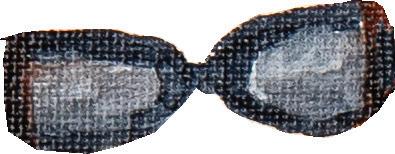
One spring day, when the ground had just started sprouting patches of grass in between the piles of mulch, the maintenance team had trimmed down a few of the bigger trees as they regrew
8
their thick layer of leaves and blocked too much sunlight. At recess, my class flooded the playground and stumbled upon a discarded pile of three logs, waiting for disposal. At first, no one wanted to move them and risk getting in trouble, but eventually, our curiosity got the better of us and we started making plans of what we would use them for.
Naomi, Zakia, and I wanted to use them as trot poles in our game. Another group wanted to make a gym and use the logs as made-up equipment. This clique was led by Grace Johnson-Scroggins, whom I had known since we were three and three and a half. (She was older). I knew Grace wanted to make a gym because, being sort of close friends, she excitedly told
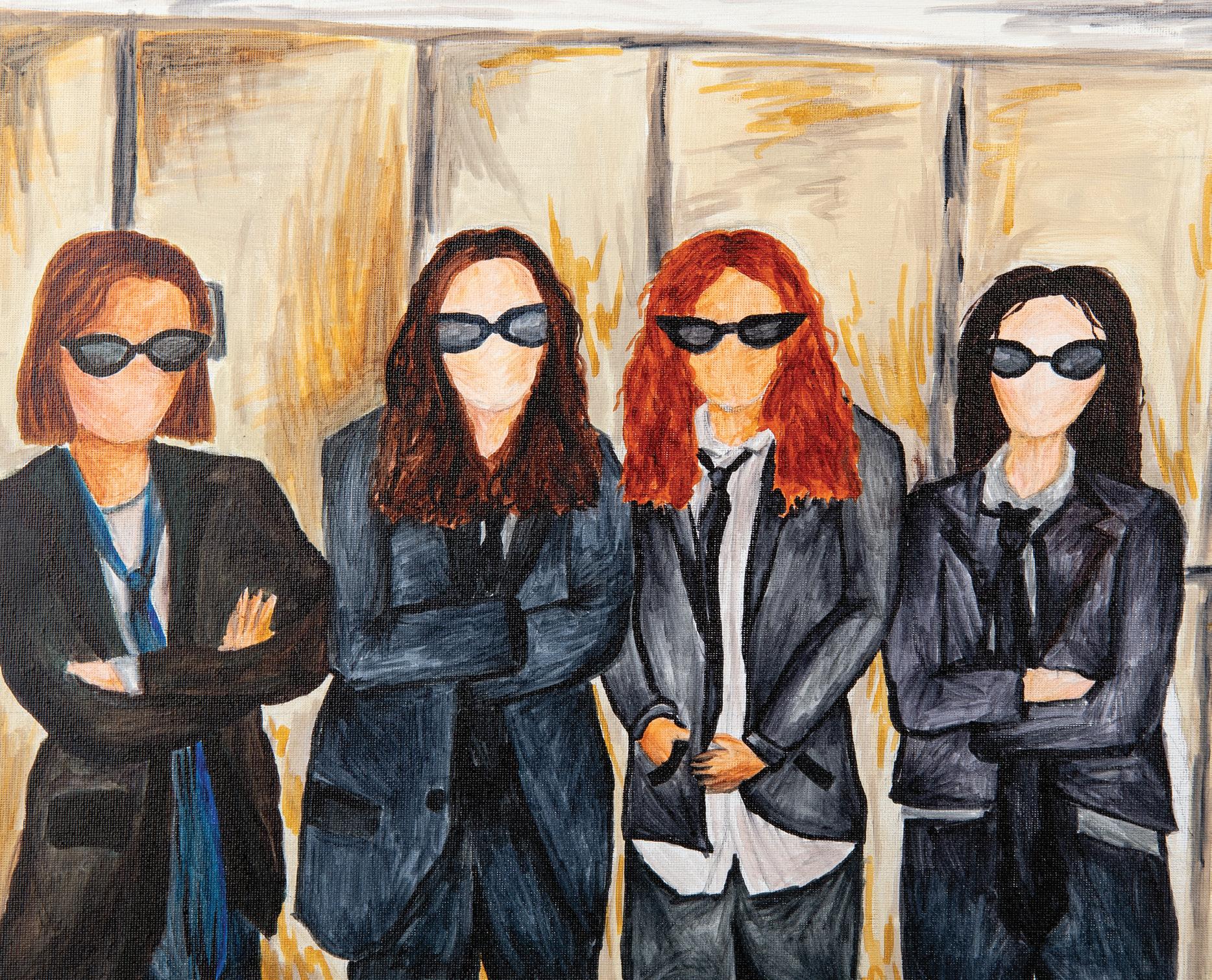
9
Helen Binner | Women in Black, oil on canvas
me her plan. She even suggested that she could use them with her friends during recess on one day and we could have them on the next.
I didn’t trust her. I had no reason not to, really, but I didn’t. For all I knew, the maintenance team might whisk them away later that evening. This could be our only opportunity to play with these coveted tree logs. And, of course, knowing that there were three logs that someone else wanted, I only wanted to play with them more.
So, I gathered Naomi and Zakia, and we made a plan to take just one for our game. I should note that on reflection, I am aware that we were hatching mischievous plans over discarded branches for a madeup game, and that my willingness to steal from a close friend for the sole reason of wanting what someone else has should be unpacked at a later date.
Nevertheless, just as Grace had finished setting up her “gym,” we tiptoed
to carry the huge log together, and stole away in the noontime sun.
Uproar ensued.
Grace demanded reparations. She marched right up to Patty and tattled right on top of the big hill above the playground, where Patty usually sat and watched with her beetle eyes. Within minutes, Grace, Naomi, Zakia, and I had been asked back into the classroom to talk. We sat on the usual “circle-time” rug with Patty on a stool before us. She asked us what happened. Grace, naturally, spoke first.
To be honest, she told the truth and nothing but the truth. She might as well have sworn on the Bible. She recounted exactly what happened. Sure, there was a tinge of hurt dripping from her words, and betrayal gurgled on her tongue, but she had presented her case and she had done it well.
I shouldn’t have been surprised. I liked Grace because of her matter-of-fact, no-nonsense attitude. She was all short, curly hair and hands perpetually on her hips. She really serious.
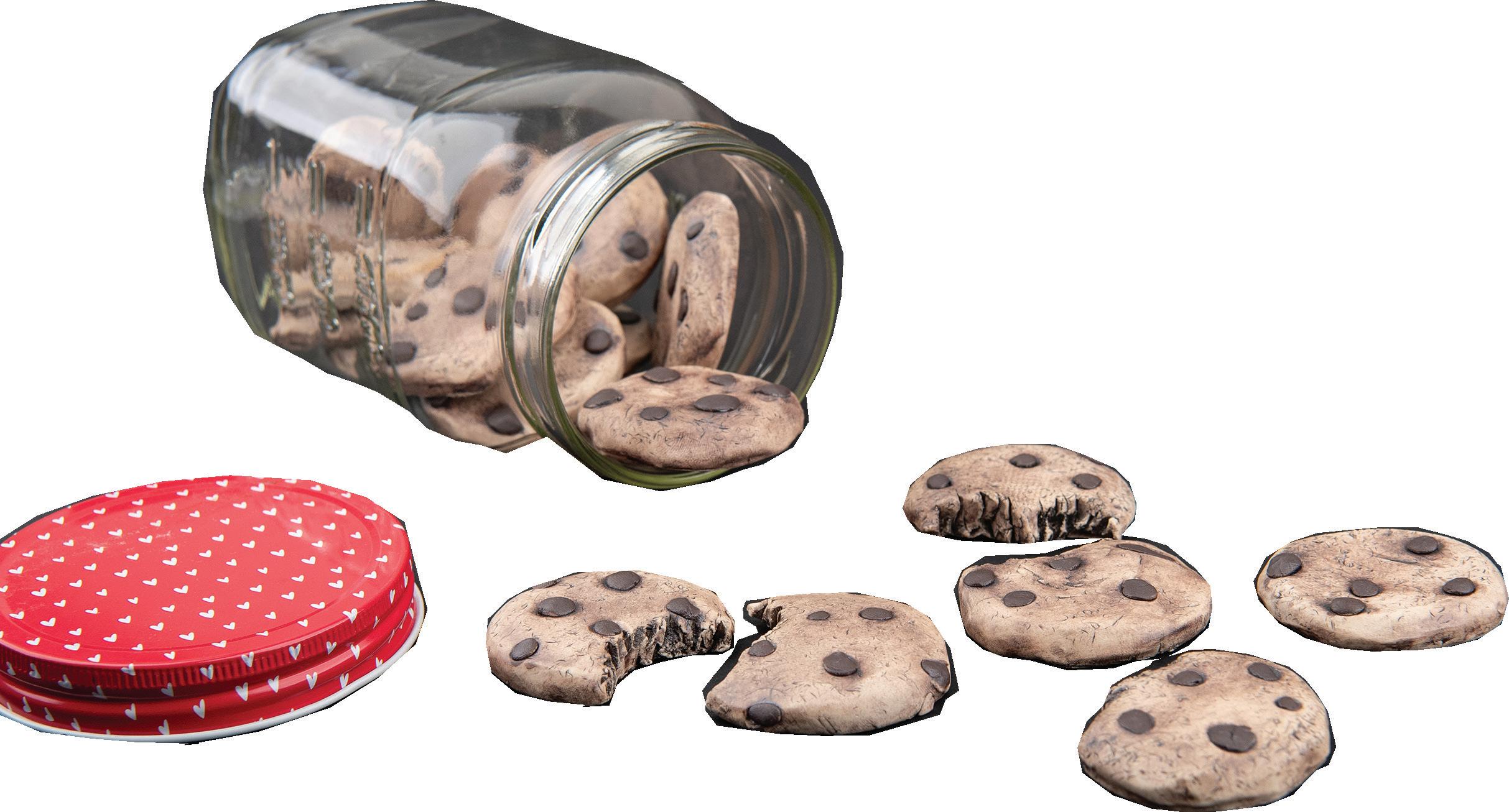
Now, as I watched her retell her story from the corner of my eye, her arms folded, and I knew I had lost. There was no talking my way out of this one. No matter how much I liked Patty and she liked me, I could taste the disappointment she would have. So, I did the only It started as a sniffle.
I had never been good at crying on command like Veronica could The Saddle Club. I didn’t even cry
10
when I watched Lilo and Stitch 2: Stitch Has a Glitch when Stitch dies in the plane crash but Lilo revives him with magic of sorts. And that was really sad. But now, my eyes started to get wet, and I knew I had to commit. I covered my face and tried not to make it obvious that I was peeking out from between my fingers to see if it was working.
Grace exclaimed, “Why is she even crying?! She took my stuff!” But Patty put her hand on my shoulder, and that was it. Game, set, match.
I was told to apologize to Grace, which I did eagerly and remorsefully, but the look she gave me was one that haunts me now. She had such an expression of disgust and anger that I had never seen. Gone was the friend that I had made in our blue cots as we learned “sight words” and how to count on our chubby fingers. Gone was the Grace that I had called my best friend at one point.
In that moment, we had become strangers, and my apology was for so many other things besides those silly logs. Now, the tears were real. They were warm and regretful as they dripped down my cheeks. The tears sank into the carpet beneath my criss-crossed legs, and my heart sank with them. But it was too late. I had done irreparable damage, and like the no-nonsense person she was, Grace was having none of it.
It was the first time I felt the weight that the consequences of my own actions had caused outside of simple things with my parents. The first time I realized that an apology wasn’t always enough. To this day, I wish for nothing more than to speak to her. To say anything after years spent in grudging silence. And if I saw her tomorrow, all I would say is, “I’m sorry.”

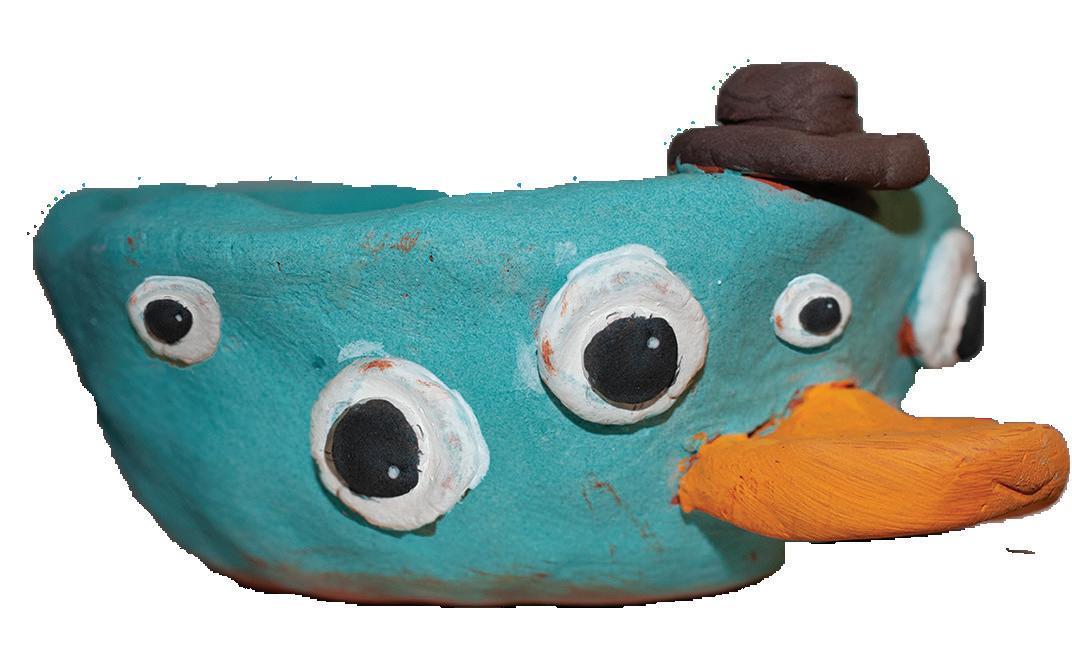
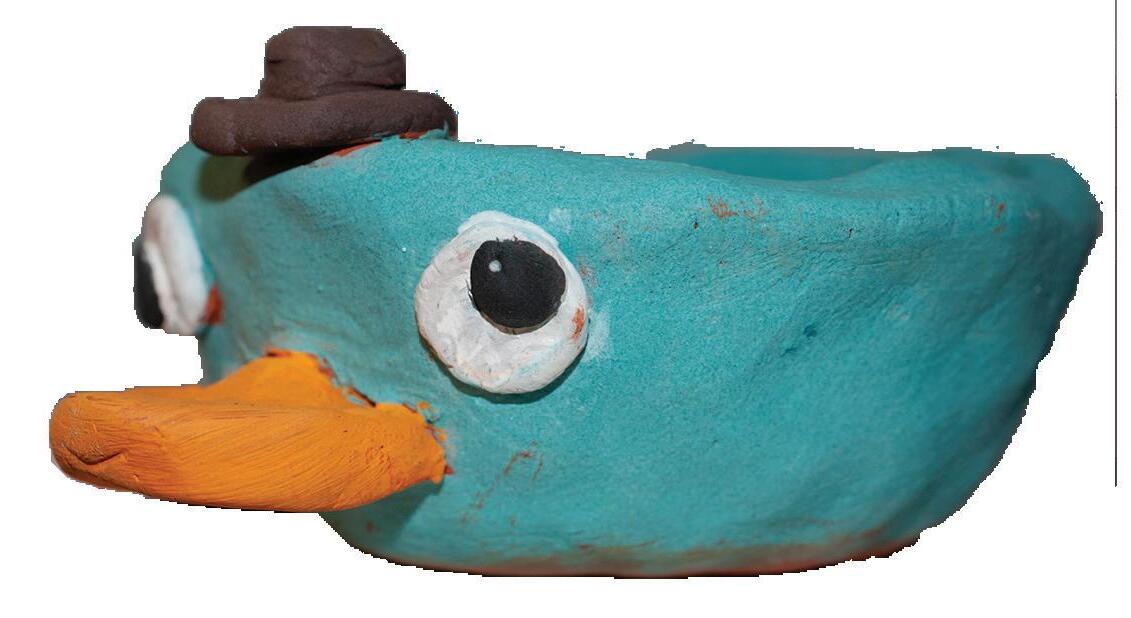 Emme Poole | Perry the Platypus, digital photograph
Emme Poole | Perry the Platypus, digital photograph
11
Sabine Rana | Perry the Platypus, terra cotta
S
W I N G S
Whatis it about swings? What is it about the little seats, hanging there swaying in the breeze that always pull me to them. Any other attraction at a park is immediately overshadowed by the presence of swings. The strong urge to jump on one, pump my legs, and end up in the sky. Palo Alto, California, was just another place that held a park that held my favorite attraction. Swings. At the ripe age of four, I was already starting my journey to become a swing fanatic, an average lover of, and participant in, the activity of swinging.
I ran ahead of my dad, feet mashing against the mulch. I had just braved the see-saw, another fan favorite. My sister Charlie had beat me down the slide, but I completely forgot the competition as soon as my eyes set upon the far corner of the playground, just touching the fence surrounding the area. The swingset, a hulking figure in the distance, beckoned me. The tall, black metal looked cold even from where I stood. The seats, long plastic things, seemed impossibly high off the ground.
As I rounded the corner of the swing set, hitting the straightaway towards the seat I wanted, a group of kids appeared in the corner of my eye. Three boys. Heads taller than me. A gasp of disappointment sounded from my mouth as I realized that they were headed in the same direction as I was.
My plans will not be hampered by this group of heathens! I thought to myself, picking up my pace.
Two of the three kids were already in the air, feet pushing them higher and higher. I stopped straight in my tracks as, at the peak moment of height, they let go. Flying through the air, they let out a whoop heard all across the playground. Finishing the performance
with delicate style, one of the two landed with a roll, following through to his feet, while the other bashed to the ground, allowing his sneakers to take the brunt of the drop. The first boy, the one with the roll, came back for seconds. I knew this was my time to shine.
Clambering up onto the seat, I flipped off of my stomach and pushed myself into the seated position. The structure seemed bigger than before, the top looming high above my head. The boy had already begun to swing, slowly gaining traction. My tiny legs pumped uselessly against the wind. My dad’s leisurely pace only prompted me to gesture even more vehemently. Finally, a push from behind set me into motion. I was off. I worked my legs back and forth as if it would help me go any faster even though it was out of my hands altogether.
By now, the boy was sky-high, touching the edges of the clouds with his toes. Then he was off, flying through the air. To me, he was Superman. But. But. But I would not be topped. I was the queen of this playground. My territory. I was here first. And it looked like fun. So as my toes reached towards the sky, as the metal chains slid between my fingers, as my breath matched the wind . . . I let go.
Weightlessness is a funny feeling. Nothing holds you, nothing from any direction. Then gravity hits you again, coming back in full force. A split second, and it all comes rushing back. I flew. The sky was endless, but I was not. I had no plan for my fall, no position in which to land that would hamper the blow. So I embraced the ground, accepting my fate. Face first.
12
Sascha Rhein

13 Lily
| Joy ,
Wexler
digital photograph
Ode to Spring
To the freshly green grass; the dappled sunlight
Glistening off the old spire swirling atop the ancient church;
To the bunches of happy daffodils
Sprouting from their bulbs with glee,
Their first glance of the world around them;
To the songs of fierce gales and baby robins, The whistles and chirps of new life;
To the cherry blossom trees
Blooming oh so fast but oh so beautifully, Their delicate flowers as soft as a mother’s touch;
To the breath of sweet, nostalgic air, The memories of past joys and The exciting possibility of new ones;
To spring,
You incredible force of change;
To all that you create and all that you destroy;
To the promise of difference, no matter how extreme, Thank you.
Thank you for gifting our feeble eyes,
Insufficient to appreciate your true power, A reminder of why we breathe.
 Elise Gledhill
Addison Burakiewicz| Pink Flowers, digital photograph
Elise Gledhill
Addison Burakiewicz| Pink Flowers, digital photograph
14
Ode to Journaling
Title
I wandered quietly as a question unasked, That lingers at the back of minds and the tip of tongues,
When all at once I saw a pen, A paper lying below.
I seized the pen and clicked it on
As ink dispersed beneath my fingertips
Flowing like the endless ocean
Writing ideas to set into motion
author of poem
Words came to me like wildflowers blooming, Each period was a seed planted,
Paragraphs like fields growing flowers of introspection
Away from everyday dejection
If, because of my writing, my last dollar was spent, I know I would still be content.

poetry poetry poetry poetry poetry
Josie Wenchel
15
Jincheng Zhao| Stories Are Windows into Other Worlds, white earthenware

A Woman’s Greatest Consequence
Women were born to want more.
What a shame.
Women were born to want.
An awful shame.
Women were born.
What an awful, awful shame.
Bosoms and bods, shaped by Guilt, and shame.
Starvation of the soul; Nutrience desired but denied. The price one pays for acceptance is a hefty one.
A woman’s greatest consequence is a collective.
Pent up in layers. Pent up and Pressurized.
With a simple tap along our edges causing us to burst.
Then, when furious eyes swell and coarse throats burn, Will we succumb to the flaws
Of our own expectations.
Years of decrepit moans, and Sickeningly endless rolls of retired baby fat and Shameful chub, and anything but silence Come spilling out and spoiled.
Anger from desire spirals, and hate is spewed.
Venom spilled, blood showered.
The greatest consequence is our fury:
A stick of ruby red dynamite next to a champagnecolored sparkler.
A woman’s greatest consequence is generational. It is uniquely hereditary — Intertwined not by ancestry, but by a common theme:
Suffocation of the womanly spirit.
A greater sense of sisterhood found not in blood, but in The experience.
A story.
Lost, but found
Decades later in an old shoe box;
A picture of your grandmother and some handwritten notes;
Antiques found, maybe an old recipe, maybe a diary —
Anything to make you look in the mirror
And see herself in your eyes.
The greatest consequence:
The silent storytelling of past generations of women.
We share the same nose, but not the same story.
So,
Search, clue by clue.
Creep, and wipe away the dust.
Take a look at your grandmother:
Reddish-purple fingertips tease the years lived,
Smile lines show for time well spent.
Each morning, manicuring thick, yellowing nails
And brushing frail silver hairs ‘till curls go straight and still.
Then, a gentle peek at your mother.
Eye bags like luggage: She bores the weight of many more Before and beside and beyond.
A touch of concealer covers her burden. You see it, though:
How her shade gets
Paler and paler as each day passes by.
To surrender the truth:
Give up the peony-pink nail polish and the Shade-14C concealer.
To reject this reality:
Add an extra glossy coat to finish and splurge on the extra-coverage formula.
16
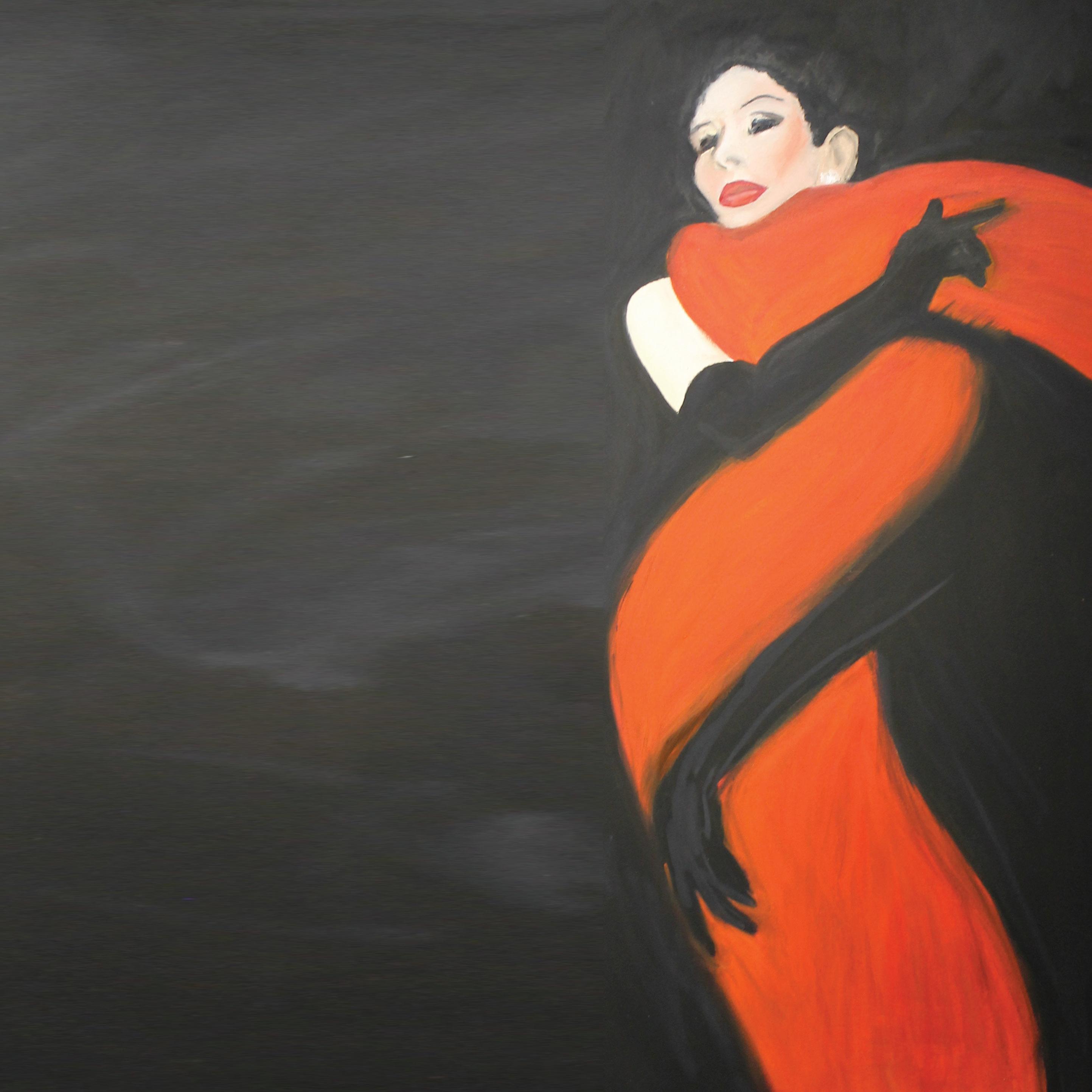
The greatest consequence:
Erasure of the past, and a longing to do so. To rid oneself of The girl one once was. Maybe.
A woman’s greatest consequence Maybe. Is never knowing Maybe.
What exactly it is
In our brain chemistry or the curves of our tender muscles
Or the curl of our eyelashes or the trajectory of the freckles and moles
Speckled across our bodies
That made us feel in such a Womanly way. Maybe. Maybe. Maybe.
It is strange, isn’t it. From countless faults of womankind should come an answer.
From trials and tribulations should come glistening horizons
Of enlightenment.
The question, still: Where did satisfaction become enough? Why?
The answer, still:
A faceless woman with trembling hands, Worn down, rusty even. Before, beyond and beside. Her. Her. Her. You. Me.
The real question, now: Was satisfaction ever there? Really, there?
The greatest consequence: A thought. The thought: Women were born to want more. What a shame. Women were born to want. An awful shame. Women were born.
What an awful, awful shame.
A woman’s greatest consequence: To want. To want. To want. Beyond, Before, & Beside. Forevermore.
Lucy Berry
17
Lily Jamshidi| Femme en Rouge, oil on canvas
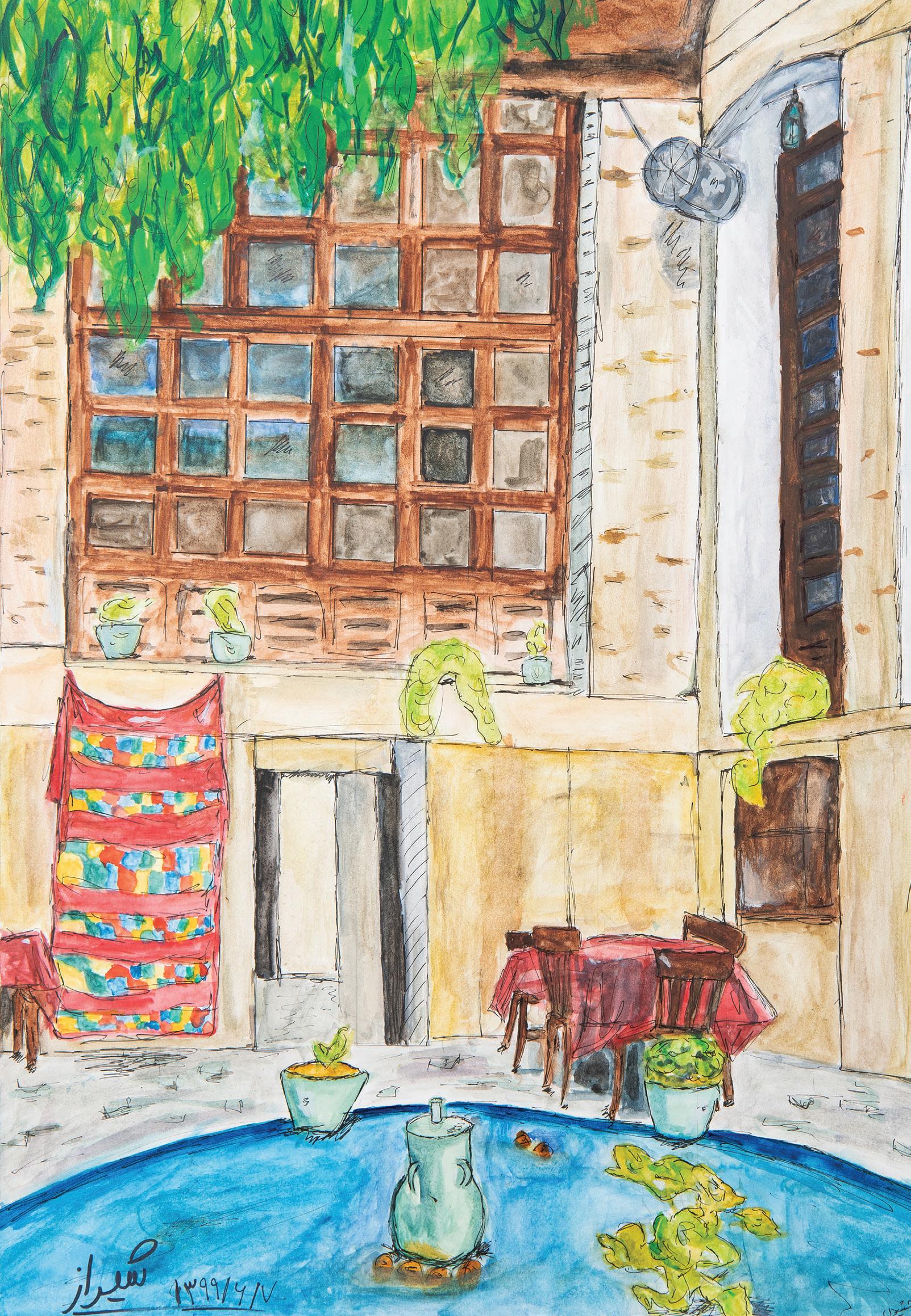
18
Lilly Jamshidi| Cafe Shiraz, watercolor on paper
War and Laundry
Sascha Rhein
Thebunk room. It was my night off. Having SAT class that evening, I couldn’t go out with the rest of the staff on my night off, so I was stuck back at camp doing laundry.
With class finally over, I slam my computer closed and fall back onto my pillow with a deep sigh. Rolling over onto my side, I open my phone. The screen lights up with a text. “I saved you a plate. Mach Schnell!” He was supposed to be on his night off as well. What is he still doing here? I’m not complaining, though — I would appreciate the company. I let one leg fall off the bed, resting my foot on the floor. Another text comes through, “Hurry up or we are going to eat your dinner.” I let my other leg drift off the side so both my feet rest on the ground. Progress. My pile of laundry in the corner beckons me, but I shake my head at it, daring it to grow any bigger. It can wait. I take my time, pausing to look out over the lake and catch the light of the moon reflecting off the surface, specifically because I have been told to hurry.
The dining hall. The expanse of the room has been cleared to mop and sweep the day’s mess away. Dishpit is bopping, I can hear the music reverberating, carrying through the empty room to envelope me. I’m pulled forward towards the sound, heavy beats thumping against my heart. But it’s my night off, I remind myself, and I don’t have to work there tonight. I instead turn to the left, through the main kitchen, past the knives and ice machine, and into the tiny break room, filled with a table that touches three of the four corners of the room. Blocked into a corner, there he is, and there is
what I have come for. My dinner. A bowl of spaghetti and two meatballs later, I push back the chair as best I can and stand. He has refused to tell me why he didn’t go with everyone else, but I appreciate his presence nonetheless. We parkour over the chairs and above the corner of the table to get out of the tight space, then stack the dishes to be cleaned.
Dishpit. Beats pump over the roar of the industrial washer. Fumes of detergent hit you full in the face as you get closer, the sauna-like air completely surrounding you as soon as you step over the threshold. Heat pushes at the edges, trying to escape. One misstep and you’ll find yourself ankle deep in water of questionable cleanliness. Mist enveloping everything in a crust of stickiness, fogging glasses and matting hair. The aprons, which hang uselessly by the doorway, have never moved off of their hooks. They wouldn’t protect you anyway from the main hazards of dishpit: Owen and David. Learning my lesson the hard way, I have walked away many a night with surprising amounts of Dawn dish soap in my shoes courtesy of David or sopping wet from a jet spray from Owen’s hand on the hose that happened to be aimed my way.
Tonight, I avoid the initial interaction and call to them from a safe distance to inquire how the night is going. As the conversation progresses, I move closer, assuming a truce has been called for the night. Rookie mistake. I glance around trying to find where my night-off buddy has gone, and then I feel it. A stream of water hitting my side. And on my night off, too.
Oh, it is so on.
19
A quick look down confirms it, a giant wet spot apparent in the dark blue sweatshirt I am wearing. Making eye contact with Owen, I smile, very casual. Inside, a flame ignites.
He turns back to his work, satisfied. My eyes remain on his back, hand groping to the side until my fingers find my water cup. I slowly wrap my hand around the cup, feeling its potential. I lift it, testing how it feels in my grip. It’s only three quarters full. That will do.
Owen and I square up face to face, a standoff. He wears a shocked expression, his gray shirt streaked with the remains of my drink. It’s like he’s stuck in a boomerang, head swinging up and down to look at his shirt, then back at me. The silence explodes. A jet of water fires from somewhere behind me.
David.
I gather the rest of my common sense, duck, and run. This is the kind of scene in a movie where a kid stands up at his lunch table and yells, “FOOD FIGHT!”
My night-off buddy appears again, this time against me. Water begins to fly around the room like it’s monsooning. I somehow remember the cup in my hand; its sturdy plastic fits perfectly in my fingers. My feet propel me through the kitchen. A quick pause to refuel, and I realize more cups have been located, but they belong to the enemy.
More water flies.
Laughter, screams.
I refuel again, feet pounding against the linoleum. The bass mimics my heartbeat, its thud reverberating down my spine. Sneak attack and my cup empties again, my only defense gone. The four of us saturate the atmosphere with intense focus, passion proven through airborne liquid. The empty dining hall echoes with
shouts as we slip and slide over the freshly mopped floor and glide back to the kitchen.
outside, plotting my revenge. It drizzles, warm and safe. A spigot appears, my savior. Cup full and heavy in my fist, I am creep around the side ing. If they come out them from the side, cape. I can wait. I one of the large over and in. bucket of my head. with cold my back. to the done yet.
across lines clog of op

a stop, giving in, and turn to face them, daring them to do it again. In Owen’s hand, one last cup of water. I am left to wonder how it has survived this whole time. He raises it, taking his time. It dribbles down over my head, my chin, down my neck, mixing with the rain. I guess I’ll have to do laundry after all. Cups empty, we laugh. Truce.
20
Melinda Salata | Spill, digital photograph
Sleepy
Moon as the
I wandered sleepy as the moon.
Amidst the night, in dreams’ soft tune. Through fields of stars I fled, A journey in the realm of my head.
As shadows dance upon the ground I drift in dreams where I am bound.
Into the distance, I fly, Beneath the bright, starlit sky.
Under the beauty of the starry night, I wander beneath the light. For love, like the moon, waxes and wanes, But, in its glow, its beauty reigns.
Leela Cohen
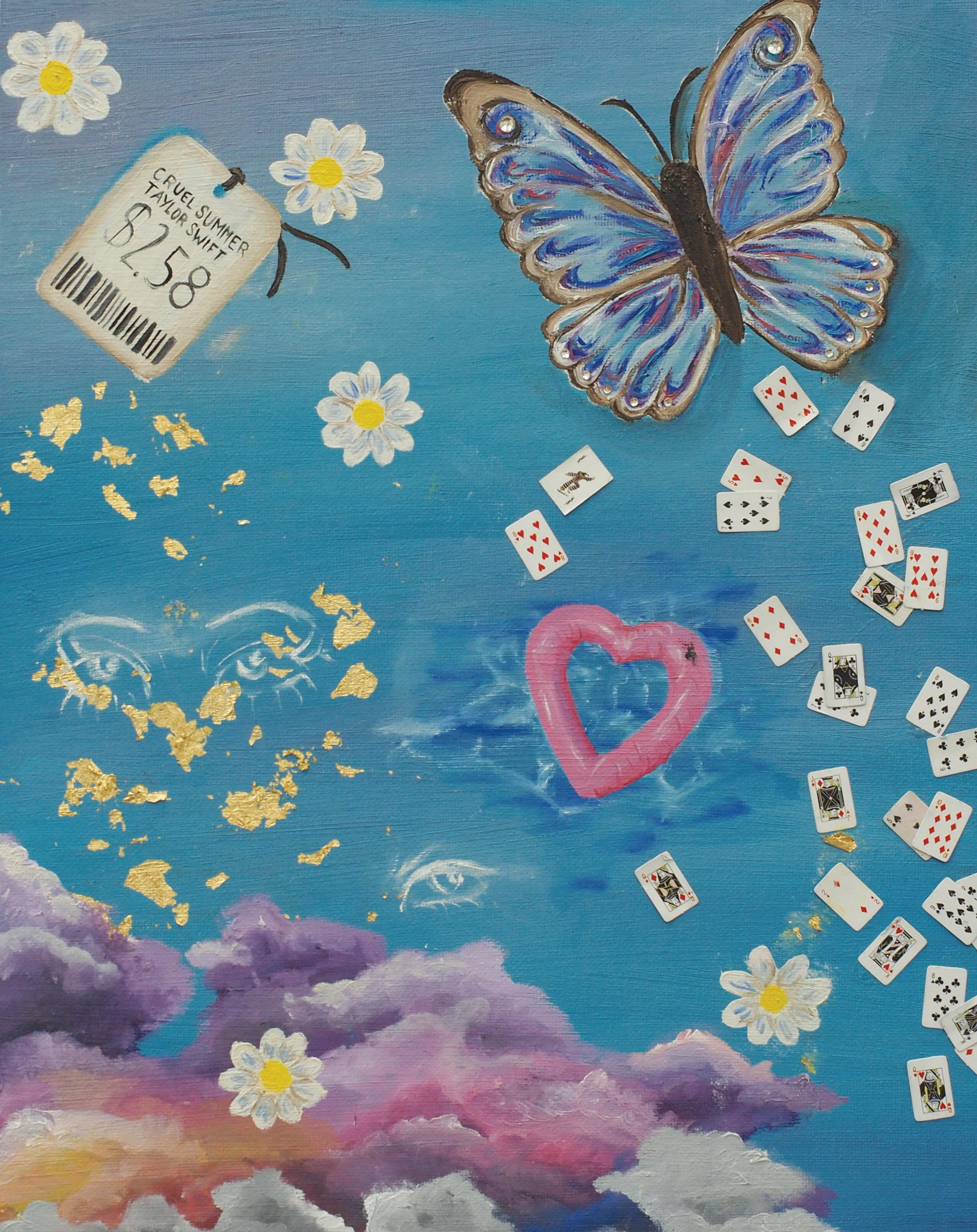
21
Mary Claire Gilbert | Cruel Summer, oil and paper on canvas
$8.99 Watermelon
Ella Moore
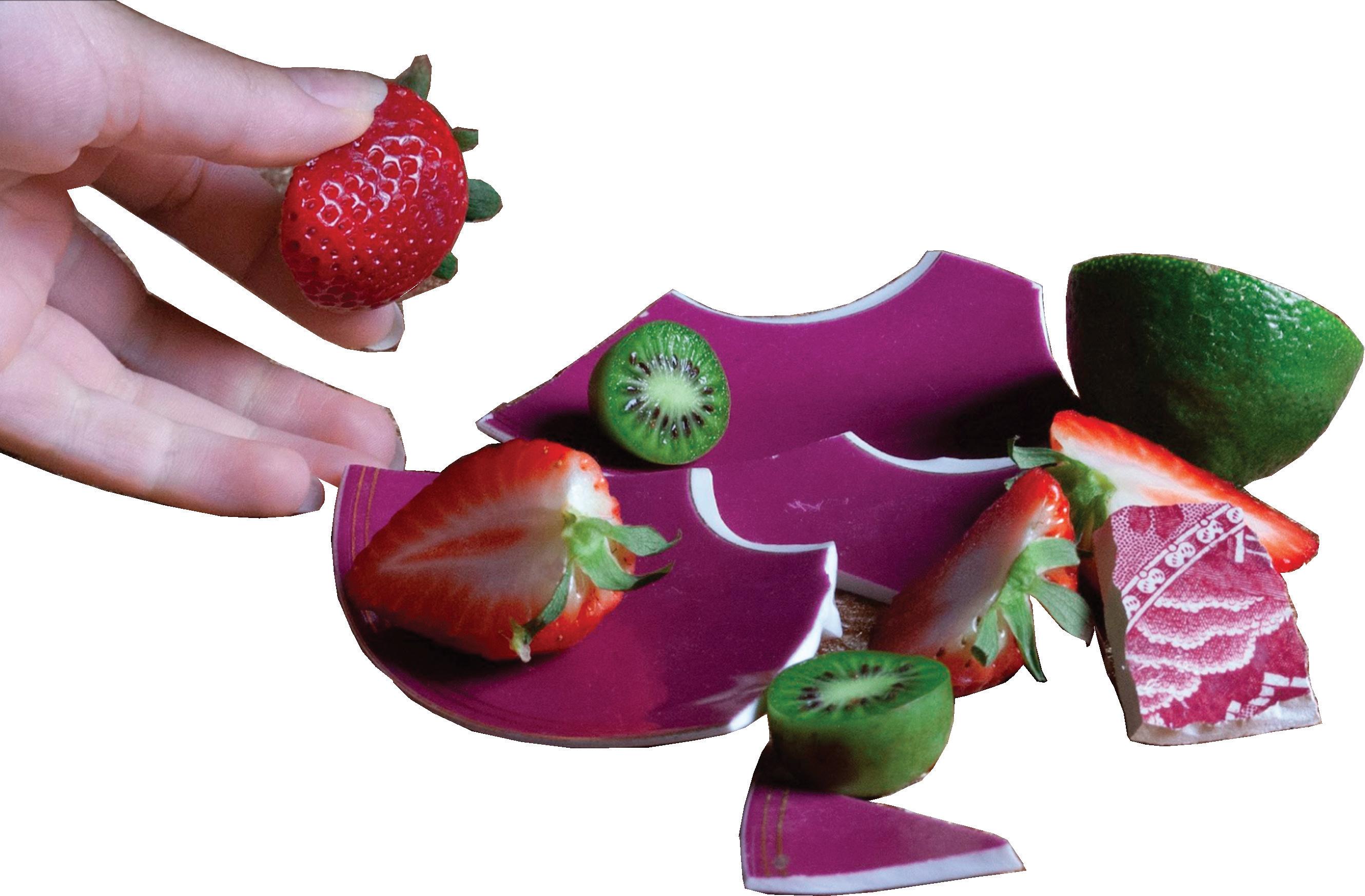
From July through August, Lewis Orchards sells six different types of watermelons. First are sugar babies, $8.99, recognized by their rich dark green color, the most popular watermelon due to their sweet taste. The second is regular seedless watermelon, the classic, also $8.99. Third is another watermelon — I honestly cannot describe to you what makes it so special — but I can inform you that it’ll cost you $10.99. Fourth is seeded watermelon, my least favorite due to its obnoxiously wide cylinder shape that makes it look like it came straight out of a genetic food factory. Those monstrosities also set you back $10.99. Then, there are two types of $8.99 watermelon that are yellow on the inside;
Cinda swears that they have the best taste, but they look unappealing to me. The final watermelons are the baby ones, baby ocelots, which are $7.99, though some are so big that it’s easy to mix them up with the regular watermelons. The watermelons are confusing, and the signs are unfortunately too far for the cashiers, making it easy to cheat. Often I’ll have to ask a customer, “Which bin did you get it from?” or “Is it a baby ocelot?”
22
Zoe Nash | Broken Assortment, digital photograph

Or if I want a tip, I’ll say, “Yum, sugar baby is my favorite.”
I don’t much like talking about watermelon, especially as a Black cashier. You never know what these Poolesvillians are thinking. But talking about watermelon proved to be quite important, particularly on August 18 at 2:30 PM. According to the credit receipts, I was on my 164th customer, not counting cash exchanges, of course. I was trying to weigh a customer’s potatoes when I heard to the side of me a slightly more aggressive exchange than usual.
Laynie said, “Sir, this is $10.99.”
I figured it was just some customer being a jackass about the prices — the rate of our encounter with this particular species of customer is about 10 per 30 minutes.
Laynie said again, “Sir, this is $10.99.”
I turned. As an older employee, I often try to back the less experienced workers.
Customers tend to sense newer prey. I looked at the stuff on the counter: voila, a watermelon. The guy pointed at the watermelon and said, “This is $8.99.”
I looked at the fruit; there were two types of watermelon that everyone mixed up nearly every time. They both had a similar green color, so no one could make out the difference. But when a customer is annoying, I usually just go with the higher price, so I said to him, “This watermelon is $10.99.”
Riley, who had worked here for four years, came over. In her hand, she held her favorite emergency snack of sliced tomatoes covered with a packet of mayo scrounged from the kitchen. She said in her best nasty cashier voice, “Sir, that’s $10.99. Take it or leave it.”
He went silent and just glared. I figured he would accept his fate, so I turned back to putting the price of the potatoes into the register. Then again I heard, “This is $8.99. The sign says $8.99. You cheat! This is $8.99.”
The accusation was repeated over and over and over until it turned into yelling. I looked over: the man’s face was bright red, and his sausage of a finger was out and shaking intensely at Laynie.
Alaira quietly yelled, “Lindaaaaaa,” in an extremely high-pitched voice. Next time we need to summon Linda, we are not leaving it to Alaira.
Riley and I yelled, “Linda!” and she came over.
When Linda’s pissed, you do not want her walking in your general direction. It’s like a bulldog racing towards you, teeth gritted and eyes small. Linda told the man, “You can leave now.”
Damn, Linda was not in the mood. Usually, she would pretend to negotiate, and then she would kick you out. Nope, not today. The man’s words became garbled into what I can only assume were curse words. I made out a “F@#*!” and “Cheats!”
He threw the watermelon across the counter. Travis, one of the four big farmer men that you don’t want to mess with at the store said, “Whhhoooaaaa.”
Linda repeated, “You can leave now.”
The man yelled, “You are cheats! You are all cheats, it is only two dollars difference!”
He held up three fingers. He picked up the watermelon and carried it over to the watermelon section and threw it into one of the wooden crates.
This throw summoned the all-powerful Robert, Linda’s husband. You don’t wanna f@#* with Robert. That man is as sweet as can be, but if you piss him off,
23
you will never again see the light of day. Robert got up in the guy’s face and said, “Now, you can’t do that. I know you are not throwing watermelons in my store.”
I thought he was gonna swing, but Travis held him back. He eventually calmed down, but the guy would not back down to a challenge. He ran over to Robert, shaking his fist, and yelled, “I will fight you, I can fight you.”
An important detail is that this man was probably 5 feet, 8 inches if I’m being generous and maybe 150 pounds soaking wet. Robert could be an offensive lineman if he wasn’t in his 70s. I admire the customer’s boldness, but honestly, he was lucky Billy wasn’t there. Billy is the biggest farmer, and he would’ve absolutely rocked his shit.
Linda said to me, “Press the button.”
The button was hidden under the register attached to the side of the wooden slats. It was supposed to notify the police. The guy gave up on battling Robert and ran back to the watermelon section, pointing to the signs, “It’s $8.99! You cheats. F@#* you!!”
His gesticulations were a beautiful mix of awkward and aggressive, and his arm motions didn’t follow all the way through; he just sharply jutted his arm toward the various watermelons. “Cheats! You are all cheats!”
Arianna yelled back, “Dude, just shut up!”
The guy stormed towards her, and Linda yelled, “Arianna, no!”
Of course, the wall of Travis and Robert stood in the way. I started giggling until Alaira and Laynie looked at me with wide eyes. I suppose this was a serious moment. A guy awkwardly running around a store
pointing at things and flipping off everyone else is a no-laughing matter.
As reassurance, I said to them, “Guys, don’t worry. We have weapons — look at all these canes that old people left behind under the counter.”
One of them had a wooden handle and a metal hawk welded to the top that could do some serious damage. Cinda, who was filming, got right up in the customer’s face, and he flipped her off right in the camera. Customers started making their way towards us, all of them resembling deer in headlights. An old lady said to me, “Can you hurry up? He could have a gun.”
Ma’am, if you really believe your life is at risk, then leave your damn okra and green beans!
The next customer edged gingerly towards my register, despite its being more than twenty feet away from the scene.
“Does this happen often?” she asked.
“Well, one guy called my boss an asshole for not having tomatoes, and another ran around the store after being told that he had to wear a mask, so I guess it’s a relatively frequent occurrence.”
She just said, “Oh.”
The prime customer, seeing that we were continuing our transactions, decided that if he couldn’t save himself from our cheating ways, he would save others. He ran outside and started yelling at people in their cars.
“These people are cheats! Do not come here.”
He stopped a guy who was wheeling his cart in, “They are cheats! Don’t come.”
Travis walked behind him and looped his finger in a circle near his head. The customer with the cart just
24
said, “Ok, thank you!” He then proceeded to make his way over to the bell peppers.
The valiant hero did a few laps around the store, then seemed to tire himself out. Cinda was still faithfully filming. He eventually sat on the watermelon wooden pallet and crossed his arms, smirking, a job well done. Travis, Robert, Cinda, and Linda stood around him. The police had been called, and we couldn’t let him escape. I don’t know what I expected from the police, but they took their sweet time. And when they did finally arrive, they didn’t add anything to the situation. They just wrote up an arrest warrant if the guy came back. He then drove off in a convertible.
Alaira said, “He probably thinks he’s so eff-ing cool in his fifteen-year-old Mercedes.”
I would like to thank that customer for speeding up the rest of our day. I got to leave at 5:50 when normally I leave at 6:30.
The next morning, Linda came up to us and said, “All the watermelons are now $8.99.”
 Addison Burakiewicz | Caged Flowers, digital photograph
Addison Burakiewicz | Caged Flowers, digital photograph
25

Beneath the Sun
Beneath the sun’s warm kiss, where waters gleam, Rhythmic waves, an eternal symphony.
The ocean whispers tales of old, In waves that dance, in stories untold.
The fragrance of summer in full bloom, A fragrant spell that banishes all gloom.
The melody of birds chirping in the air,
A chorus that transcends all worldly care.
Cobblestone streets wind through hills of green, And vineyards grace the countryside scene.
Ancient ruins stand amidst the light, Echoes of a past both bold and bright.
Among timeless remains and lush greenery,
Vibrant cities and energetic seas, One cannot remain melancholy
In this breathtaking sanctuary.
Madison Javdan
Samantha Coulman | Radiant Roller, digital photograph
26

April Showers
She felt so calm
On forgotten late April mornings.
Slow Sundays, tea and toast,
She sat on her parents’ porch and listened to the raindrops poke the gutters
As they together washed everything away . . . turned the earth anew.
She was home, and it sure felt like it
When the rain around her was deafening, heard like her own heartbeat.
Sounds like the white noise she used to play
To force herself to sleep, back when this house was just unfamiliar rooms.
Now the sky had paled like faded jeans but she saw the grass gleam greener, brighter than ever before. How unreal.
She was surrounded by wildflowers. Also glowing, a joyful shade of yellow.
She heard the mourning dove hoot in the distance and thought,
How she had never seen her own backyard look more alive.
Phoebe Cohen
Samantha Coulman| Washed Away , digital photograph
Emme Poole
Title of Piece author
First para text
175Carbondale Road is the best place on earth. The little hills and valleys that make up the braids in the rug feel soft as I run my fingers over them, but the warmth barely registers. The light is soft too, filtering through the gauzy drapes lining the wall to my right and the glass doors to my left, dull from the clouds overhead. Yellowed light shines out from the stained-glass lampshade that overlooks the fraying beige couch, now just too small to fit my mom’s three younger brothers and me. Light also spills from the door to the kitchen in front of me, whiter, accompanied by my grandmother and her sister’s grainy voices and the ting sound of copper pots kissing a marble countertop.
The light bounces off the short yellow curls floating a foot above the carpet next to me as Annabelle grips a red and blue clump of clay with her pudgy fingers. When she tilts her head up to look at me, the light slides down her olive forehead and gathers between the layer of blue surrounding her pupils and the glassy curve of her retinas.
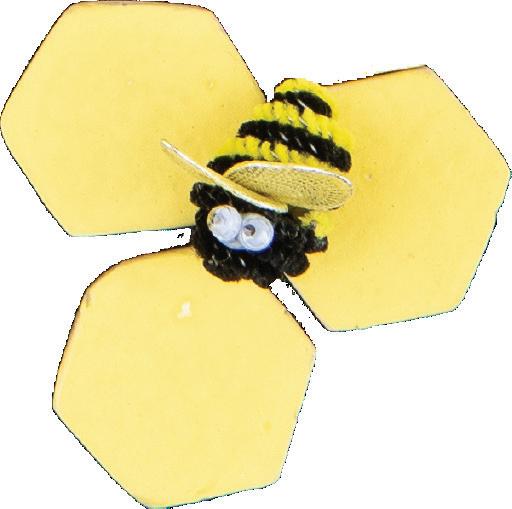
“Can we go for a walk?”
Annabelle’s voice pulls me back to the moment.
Her little feet pad on the taupe carpet in the living room, then squish down against the wood in the entranceway, over the thin, patterned rug in our grandmother’s store, then press against the gray stones lining
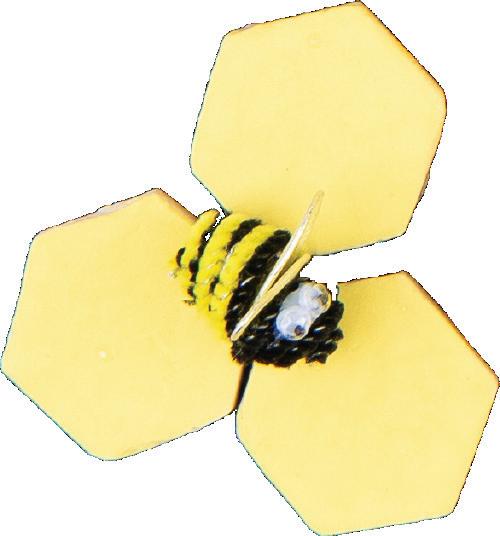
the floor of the mudroom. The floors here are heated but no match for the late-fall chill that’s settled into Waverly, and they sting our toes. Annabelle pulls on her puffy yellow jacket (she struggles a bit with the zipper, but Montessori is big in our family, so I fight the impulse to do it for her), black gloves, and pink hat, while I determine which of various coats hanging in the mud rack to steal.
The chimes hanging above the door hum when the wind first nips at our noses, and I struggle to squeeze myself into her tiny shoes: what would interest a four-yearold? At her age, I toddled after Bernese dogs like giants, begging my uncles to toss me around the trampoline at the edge of the property for hours. But when I look across the front yard, there’s only a grayish circle of grass and two empty doghouses. The trees alongside the pavement scrutinize us with clay eyes.
We stomp down the steep driveway, stopping to climb atop stone walls, kneel down to delicate clay cottages, and peer at the pottery studio and water tower settled on the plateau halfway down the hill. Finally, when we veer toward the road, I find direction. Thin, jagged stones pierce the ground to our right, outlining a path through the dead leaves, toward the tented greenhouses.
“Come on! Come on! I want to show you something!”
Fluffy blonde eyebrows furrow up at me, and I laugh a little. Light glitters off the fog blanketing Lackawanna.
28
The trees gaze down on us as we bound up the hill, sneakers scuffing over dewy variations of crimson, sienna, and chestnut. Through her eyes, I rediscover how I love the smell of damp bark, the pattern light paints on wooded ground, and the cool air on my skin. I slip in the dirt and accidentally drive a woodpecker off its branch with a squeal. Annabelle runs a cottony finger through the ends of my hair, then pulls out an unreasonable amount of leaves. We meander along the short path this way for minutes.
Halfway up, we follow the detour branching off further into the pines and stop with the pathway at five gray-topped white steps. Annabelle grasps my finger while we crea-eak! up onto the square porch. From up here, the forest stretches out all around us, echoing its symphony of owls, harriers, and sparrows. I lift the tiny body in front of me up and over the railing, so Annabelle can sit at my eye level and watch bucks tiptoe around the uncovered plant beds resting at the
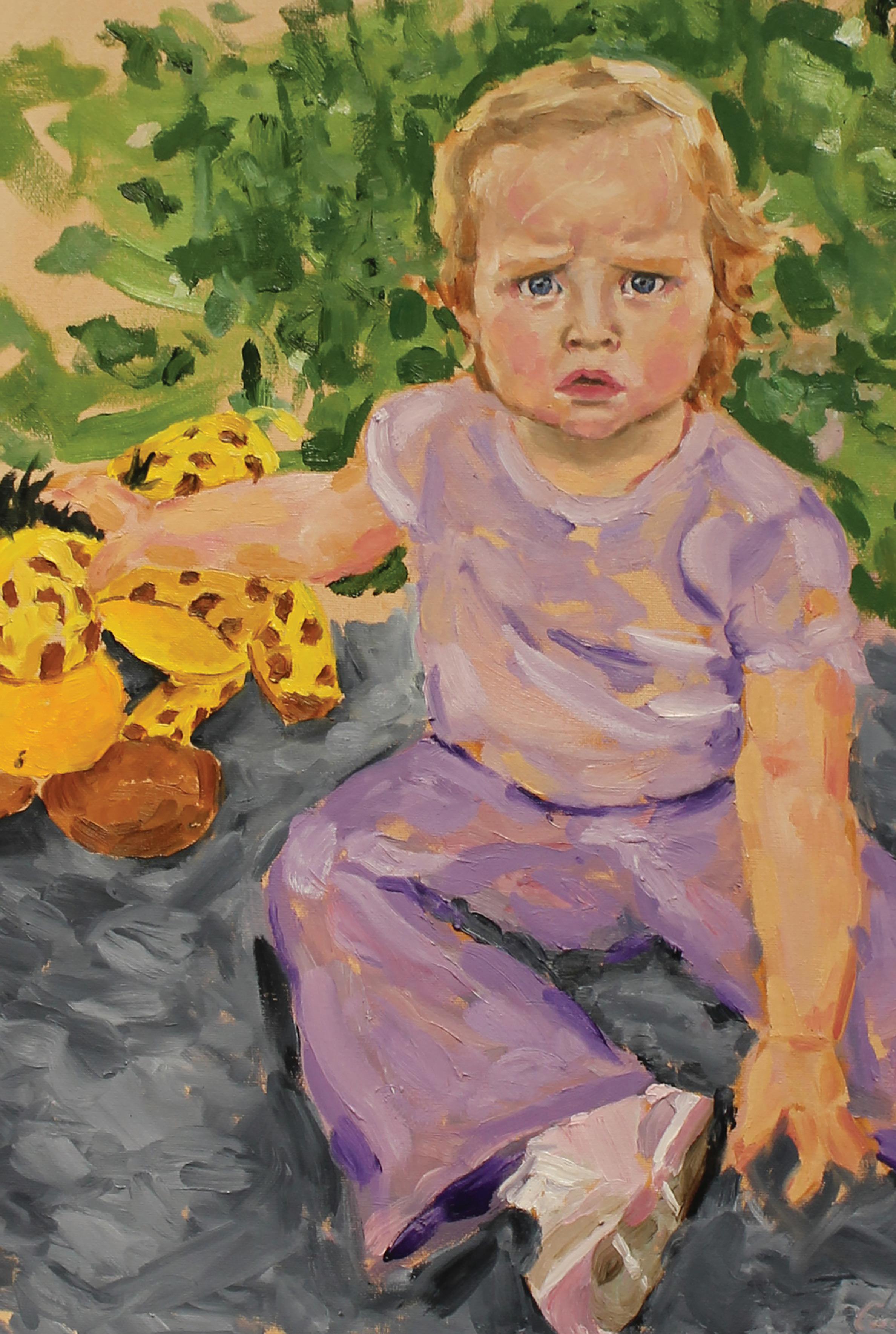
29
Cecilia Holdo | What are You Talking About?, oil on canvas
bottom of the steep steps leading from the compost bins to the glass at the end of the kitchen.
After the deer dart back behind the treeline, and the birdsong fades into the background, I wrap my hands around each of Annabelle’s ankles and swing her around to face me, then around her waist to lift her to stand. She doesn’t speak, but she does smile.
“You wanna jump? I gotcha, I pinky swear.”
She giggles as I catch her and continues for all the time it takes to step across the tiny porch and open the screen door. I’ve always thought about this place as a time capsule, since neither of my grandparents has touched it much since they bought this place in ‘98, and before that, the author living here hadn’t come down to write in years.
A box-and-antenna TV, flowery wallpaper, and dusty desk crowd the small room. I bend down to ignite the heating oven, then settle into the couch with my cousin for a nap.
I’m not sure if we say anything during the post-nap trudge downstairs, and up toward the stone porch hugging the family room, kitchen, and greenhouse-pantry. The chirping and chiming of the woods make way for my family’s chatter and clanging in the kitchen. Corey grabs the handle, then warm air smelling of turkey, pumpkin, and cranberry envelops us.
“You’re back!”
“Did you both have a good time?”
“Come here, Anna.”
“Emerson, grab the ghee for me, would you? Wendy said you would help with potatoes.”
“Oh! You must be so cold, come here, come here!”
I must look in about eight different directions during the second it takes to catch up with the speed of time. When my fingers brush against and tie my old apron around Annabelle, my chest feels warm in a way entirely contradictory to the last few hours I spent outside.
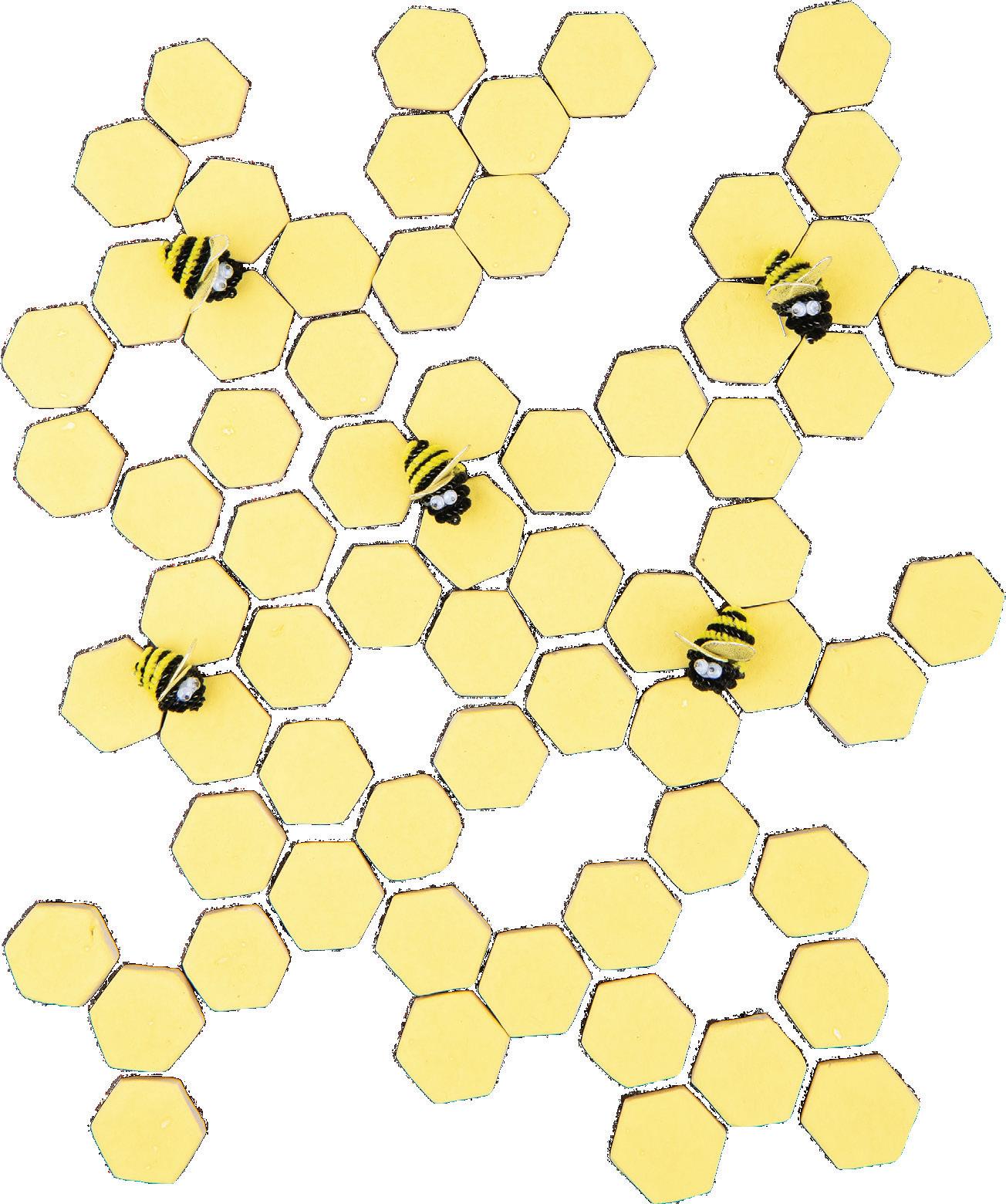 Reese Udler | Harmony in Multiples: A Mosaic of Honeycombs,
Reese Udler | Harmony in Multiples: A Mosaic of Honeycombs,
30
porcelain
The Three Bobos
Safiya Kurbanova
Bobo means “grandpa” in English, but it’s more than just a word for me. It’s a connection to my Uzbek heritage. Growing up in the U.S., I often explained my cultural identity to others. Despite its rich history and vibrant traditions, though, Uzbekistan has remained largely unknown to many. But I’m a hypocrite to say that because I’ve always felt like an imposter with my background.
Even having been born there and taking yearly trips to Uzbekistan, I always felt “different” and “too American.”
This disconnect became prevalent at the beginning of my sophomore year. So like any other normal person, I embarked on a personal journey to share and learn about my heritage through art, leading to the creation of “The Triumph of the Three Bobos.” These clay figurines are symbols of resilience, each capturing a piece of my identity and Uzbek identity that has endured the test of time — a set of three showcasing Uzbek music, cuisine, and memories.
The first bobo, with weathered hands hovering over a traditional Uzbeth Gidjak, symbolizes the enduring melodies that echo through the years. The second bobo proudly cradles a dish of plov, the iconic Uzbek rice and beef delicacy, a symbol of communal gatherings. The third bobo, short in stature like a beloved grandfather, delicately holds a cup of tea — tea, a constant companion
in the Uzbek cultural narrative, a refuge for connection, conversation, and a shared moment of respite, especially from the challenges faced during the Soviet era. Together the three bobos encapsulate the indomitable spirit of the Uzbek people.
In Uzbekistan, you can find these figures almost anywhere, whether displayed on a shelf or in the hands of a kid who will likely break them. So I set out to recreate my own bobos. Crafting these figurines was a deeply personal journey, for I also made them with my late grandpa in mind. With each stroke of paint and curve, I kept in mind my loved ones and all the past bobos before me. So I invite you to join me in celebrating the beauty and strength of Uzbek culture, a legacy my late grandpa cherished.
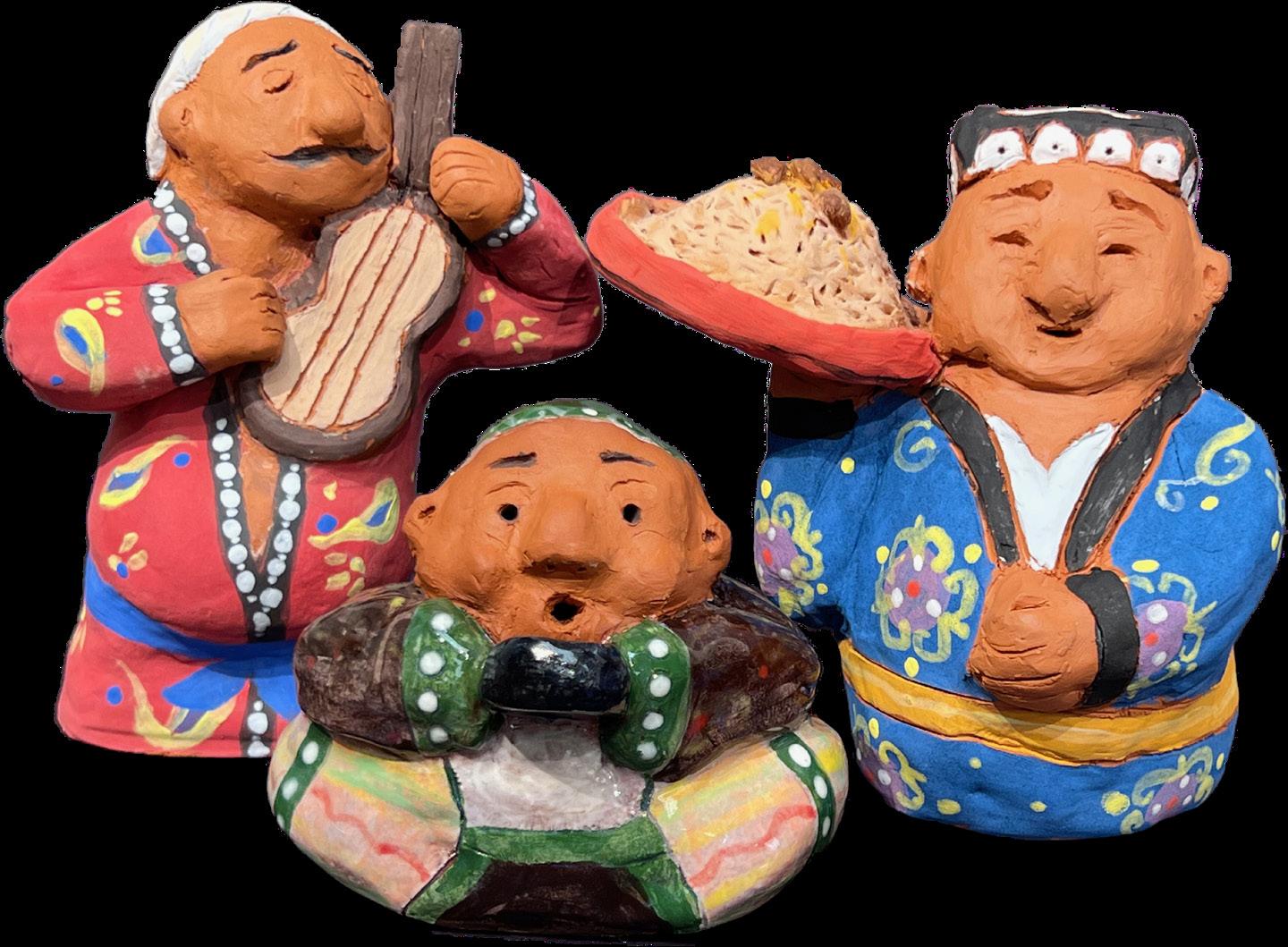
31
Safiya Kurbanova
|
The Three Bobos, terra cotta
animals with insomnia do not survive in the wild it is not meant for them; it is not meant for us
text text
text text.
text text.
text text.
text text. text text.
Sample poem
would you still believe in me? my dark circles and my rusty jeans
if i had insomnia would i be like you?
last night you got up at 3 am and made bunnies out of boxed cinnamon rolls you claim it was the time covering your hands that gave you your genius that everything is better in the night my father, he disagrees he says he heard the door creak and i imagine he stared at the ceiling until he heard your footsteps down the stairs i wonder if he wondered where you are going he probably knows if you were an animal, would you still wake at 3?
would the time still coat your hand like glue shaking off in droplets like water would you still believe in cinnamon roll bunnies? in rom-coms and mediocrity
text
i am your spitting image; your little girl sometimes i wonder if night is as blind as it renders sense if it would tangle my face into yours and refuse to let go until morning
would i wake up at 3 am and go downstairs to make rabbit-shaped cinnamon rolls?
would my father still stare at the ceiling as my feet pad by?
if we were animals in the wild i’d still love you anyways the night tangling our faces like shuffled cards suits blurring together ‘til they are one and the same
author
Avery Phillips
text text.. text text.
text. text text. text. text text. text text. text text text text text. text text
w y 32

33
Sophia Burton | Fear, oil on canvas
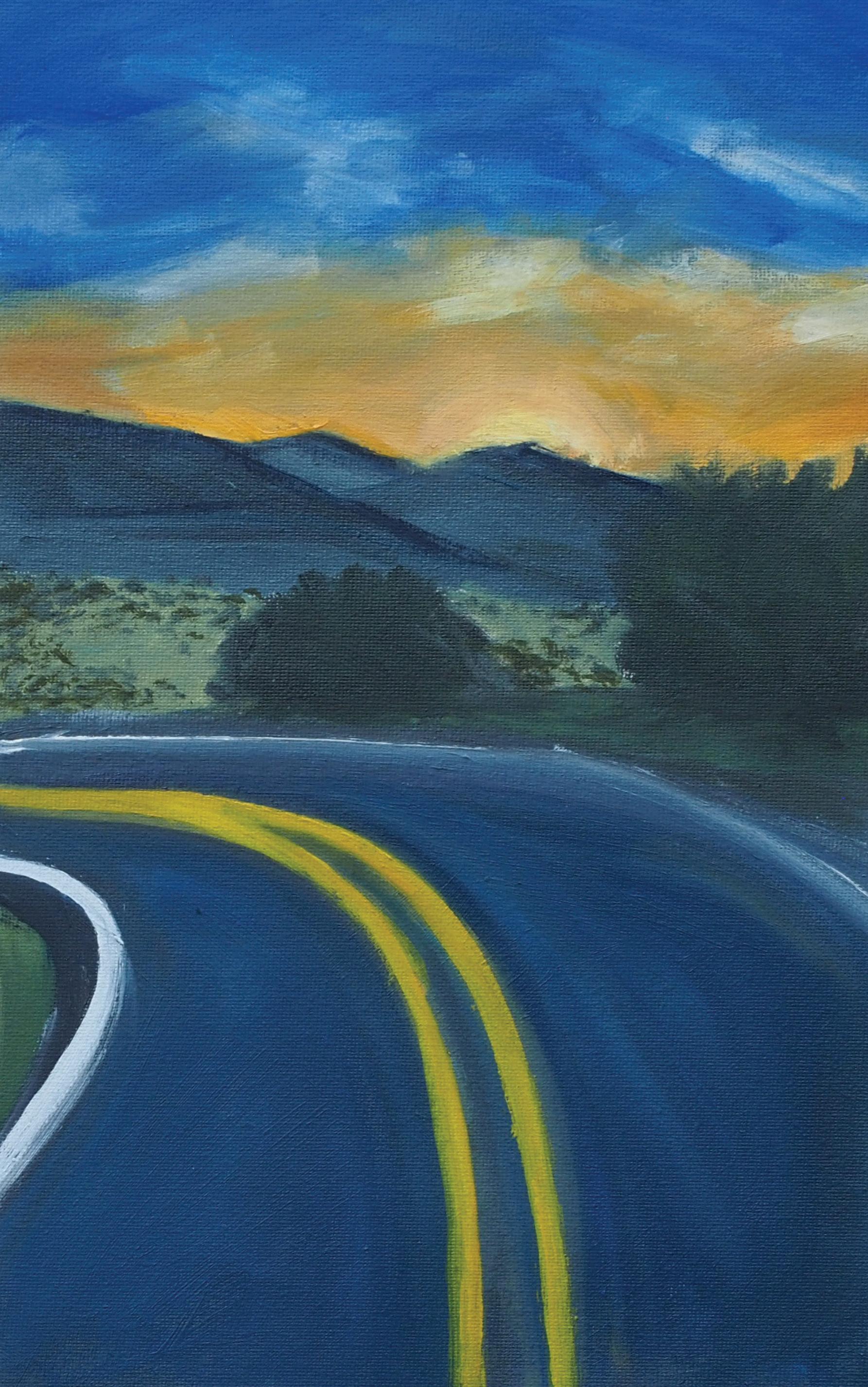
34
Kennedy Kittrell | Road, oil on canvas
Title of Piece
In the Driver’s Seat
author
Claire Buchanan
First para text
I’ve gotten the question a couple times now: Do you drive? Most people ask after they see me hopping out of my mom’s car in the morning despite the fact that I’ve had my license for a while now. I always answer that yes, I drive, but my parents always need both cars for some reason. I’ve asked about getting my own car dozens of times, but the answer never changes: No. You don’t need one.
I tell people it’s so annoying, so embarrassing, so inconvenient. And yes, I’ve felt annoyed and embarrassed and inconvenienced about my driving situation, but to tell the truth, as I sit in the passenger seat of my mom’s car each morning and afternoon, I know deep down I wouldn’t have it any other way.
When I was little, my mom was naturally present for everything — my first steps, my first playdates, my first day of school. As an only child, a companion my own age wasn’t exactly an option; instead, I relied on my mother for anything and everything. She took me everywhere, strapped to her chest like a babbling, drooling handbag.
And then, I had to disentangle and go off to school.
At Beauvoir Elementary School, I could either get dropped off in the carpool line and walk into school by myself or have my mom park in the lot and walk me to my classroom. Naturally, I insisted on having her walk me in every single day. When I was in kindergarten, most kids walked in with their moms, but by the time I hit third grade, I was the only kid
in my grade who didn’t go through the carpool line. Instead, two brunette heads walked through the double doors each morning, one tall for her age and one just plain tall.
Sometimes my classmates teased me, and my first grade teacher expressed her concern about potential attachment issues more than once, but I stubbornly refused to enter the school without my mom in tow. What should I have done, brave the walk from my car to my classroom alone? When I had the option of my mom’s company? Ridiculous.
Of course, things changed as I got older. By the time I entered fourth grade at my new school, Holton-Arms, walking in wasn’t really an option. Plus, I had finally gotten old enough to feel embarrassed, a development that proved both a blessing and a curse. As I hit upper elementary and middle school, everything suddenly felt horribly awkward. I couldn’t possibly be seen or associated with my mom in public despite the fact she still had to drive me everywhere. I would hop out of the car without so much as a goodbye or a thank-you, desperate to seem older than I was to my fellow eleven-yearolds. Walking alongside her felt mildly humiliating, especially when we went to a middle school hotspot location (so, to Bethesda or the mall), especially when I happened to run into someone I knew, especially when my mom insisted on saying hi to that person.
Nevertheless, when I hated my clothes or my friends or my classes, I went to our kitchen table
35
every time. Sitting with my knees pulled up to my chest while my mom typed away at her adjacent desk, I’d take her through everything ruining my life at that particular moment. I was in a friend group, but I didn’t like half the people. Striking out on my own was impossible (obviously), but I had to clench my fists under the table when I heard certain voices at the lunch table. Oh, and someone had a crush on me — maybe. I didn’t like him back — well, maybe I didn’t. If he liked me, then I’d like him back, but if he didn’t, I didn’t like him either.
She listened, offered sage advice taken from the exact same experiences in her own middle school days and watched me confidently reject it with the assumption that she had no idea what she was talking about. I was positive she couldn’t possibly understand what life was really like for a thirteenyear-old girl.
And then, when COVID hit during the end of my eighth grade year, my family suddenly found ourselves together . . . All. The. Time. Despite all the horror stories I’ve heard, my time in quarantine was somehow semi-enjoyable. My door certainly slammed more than once (I recall a fight about scrambled eggs that somehow turned into a discussion of my rapidly increasing screen time), but I always exited an hour or two later, wanting to know what was for dinner or hoping to go on a walk with her before the sun set. I wanted to go back to school, sure, and see all my friends again, and maybe even go on a trip somewhere, but I didn’t feel rushed about it. The pandemic would end when it ended, but for now, my mom and
I had to finish Parks and Recreation and bake our weekly banana bread.
Of course, quarantine did end eventually, and our daily time together returned to car rides and dinners that I increasingly skipped because I “really needed to study.” Back in an in-person environment, the daily trials and tribulations of my life returned as well, and I firmly believed that no one, let alone a parent, could possibly understand me. I still don’t quite comprehend the instinct that convinces me I always know better than my mom, but it soared to an all-time high during my freshman year.
Still, she was always there. The day shit really hit the fan, my mom was in Rochester visiting a friend. The day my middle school friend group had disintegrated. We had been inseparable for years. Our latest fight, though, would be our last.
When I got home, instead of telling my dad, who probably would’ve suggested we just punch each other in the face and move on, I called my mom crying from our basement. She wasn’t just in Rochester for a fun visit — she was there visiting her college best friend, Pam, who had been battling cancer and slowly losing for the past seven years.
We didn’t know it then, but it would only be a few more months until Pam passed away after fighting her disease for far longer than any doctor had predicted. And yet, my mom still picked up and talked me through my tears for nearly three hours. Even through the phone, I could tell she understood.
It’s been a few years since then, and I thankfully haven’t cried in my basement since. I still call my
36
mom after any inconvenience though, no matter how minor. In fact, I just texted her, asking to pick me up early from school because I’m tired and I think I’m getting sick. If I drove myself, I could’ve left already, but I’m secretly looking forward to seeing her in the driver’s seat; I feel too sick for the idea of driving myself to sound appealing.
Even though I complain pretty frequently about those car rides, and even though I’d love to just leave school when I want to go instead of waiting for my mom to get to the front of the carpool line, the truth is that I treasure those moments with her. If my mom didn’t drive me to and from
just us, that I value so much. If I couldn’t tell her about my day or complain about everything that annoys me in the world or see her throw back her head laughing at my stories or beg her for parental gossip, I would probably go insane. I’ve come a long way from the days of forcing her to walk me in each day (take that, Ms. Gillick — I didn’t end up with debilitating attachment issues after all), but I don’t just jump out of the car without a goodbye anymore either. My mom sits in the passenger seat while I drive a lot of the time, but there’s still something comforting about letting her take over and steer for a little bit.
Maybe I don’t need a car of my own after all.
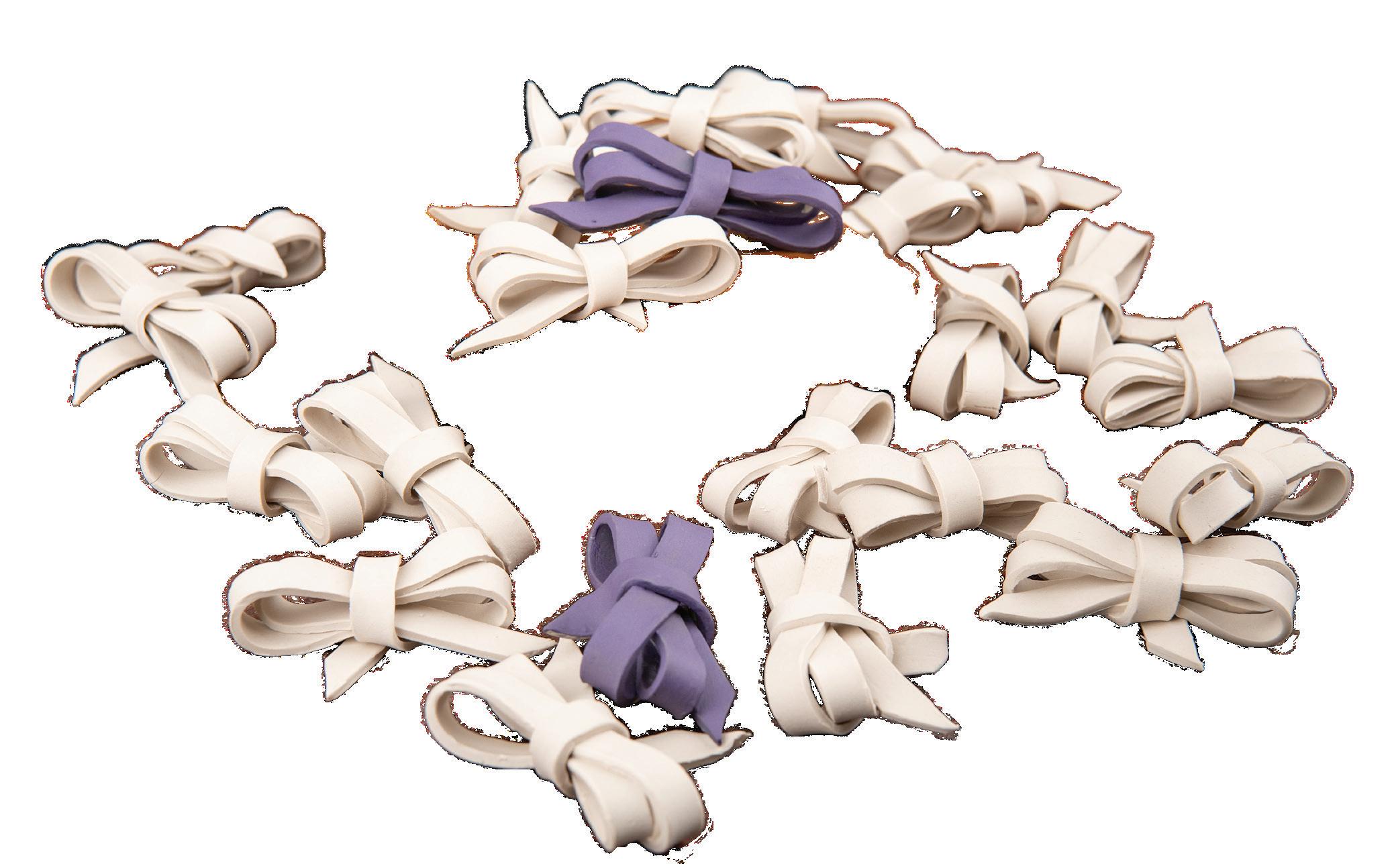
37
Zahra Rasheed | Tightly Wrapped, porcelain
Sunday evening
Sun still bright
Mama says grab the towels
And I know I’m in for a night
For some, hair day is a hop in the shower
But in my house, it’s a family affair
Sample poem
Wafts of coconut, shea butter, and floral suds
With stray curls and coils around the sink
Like a painter with her brush
My mom uses her comb to create style
Slicing her comb to create diverse shaped parts
And using her fingers to make braids of all sorts
Some skinnier than others
And some flat to my head
Either way, I can’t wait till she finishes
So I can see
My crown
After what seems like days of sitting
I feel the end is near
Impatient tears roll down my cheeks like raindrops
While R&B plays on a loop in my ear
She secures the last bead and my energy grows
I run to the bathroom to see my image unfold
Beads with every color imaginable hang on my ends
I swing my hair back and forth to hear the clicks and clacks again and again
My eyes glued to the mirror
I swear I grow two inches from the boost of confidence
My smile grows with each of my mom’s affirmations
Excited to strut into school
Already thinking about my vision for next week
Laila Clarke
text text text text. text text. text text. text text. text text. text text.. text text. text text. text text. text. text text. text text. text text text text text. text text author
38
Reflections,

39
Kennedy Hall
|
charcoal on paper
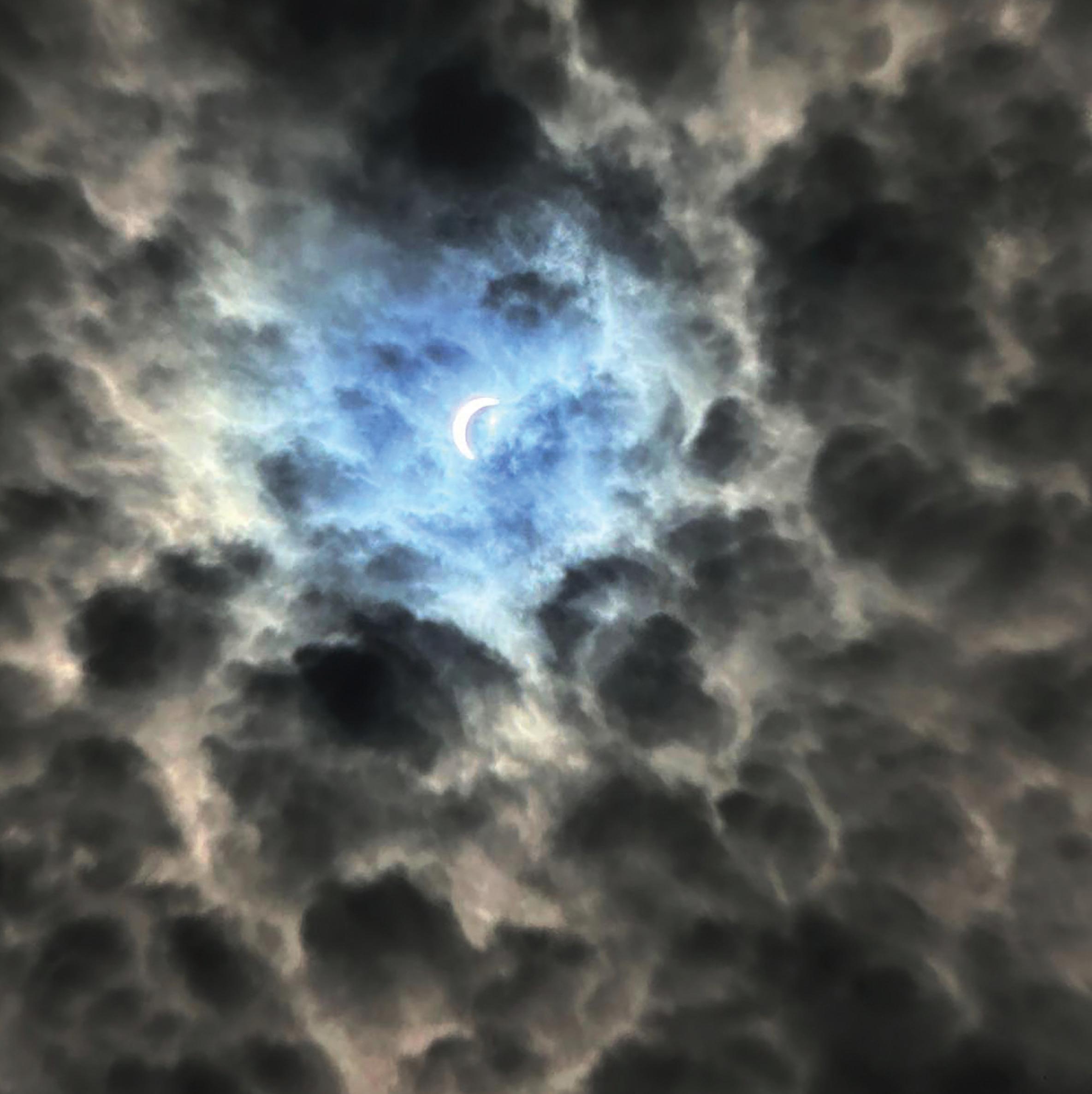
WhenISaw the Stars
AstroGetahun
40
Genevieve Graham | Solar Eclipse, digital photograph
FirstIrememberpara text
the first time I saw the stars. It was the summer before fourth grade, and I was on my own for the first time, at a Girl Scout camp in Virginia. On the last night, we were walking at night to the dining hall, flashlights in hand, guided by the camp counselors. One of the counselors pointed out the North Star, and I looked up. I had never seen something so beautiful in my entire life. A sky riddled with light, so close I could touch it. I saw graceful Venus sitting among the stars, I saw the waning moon shine so brightly despite barely showing itself, and I saw constellations I’d only heard stories about. I stood there and watched until I had to be called to join the group. At that moment, I felt I understood why people have always looked at the stars. How it feels to experience something larger than yourself, to let it fill you. To let the stars map the way, to find answers in the sky. I had never felt so whole.
Title of Piece author
to let it fill you. To make way together, to find answers within each other. I had felt so whole one other time.
Now, I see the stars all the time, in chorus class, when holding the door, in laughing together. To experience something larger than yourself, to let it fill you. I don't know why it took scientists so long to discover we were made of the same stuff as stars. Both are a part of something bigger, relying on each other. Like the planets, our gravity attracts other people, building our solar system. No constellation is made of a single star, no change is made by a single person
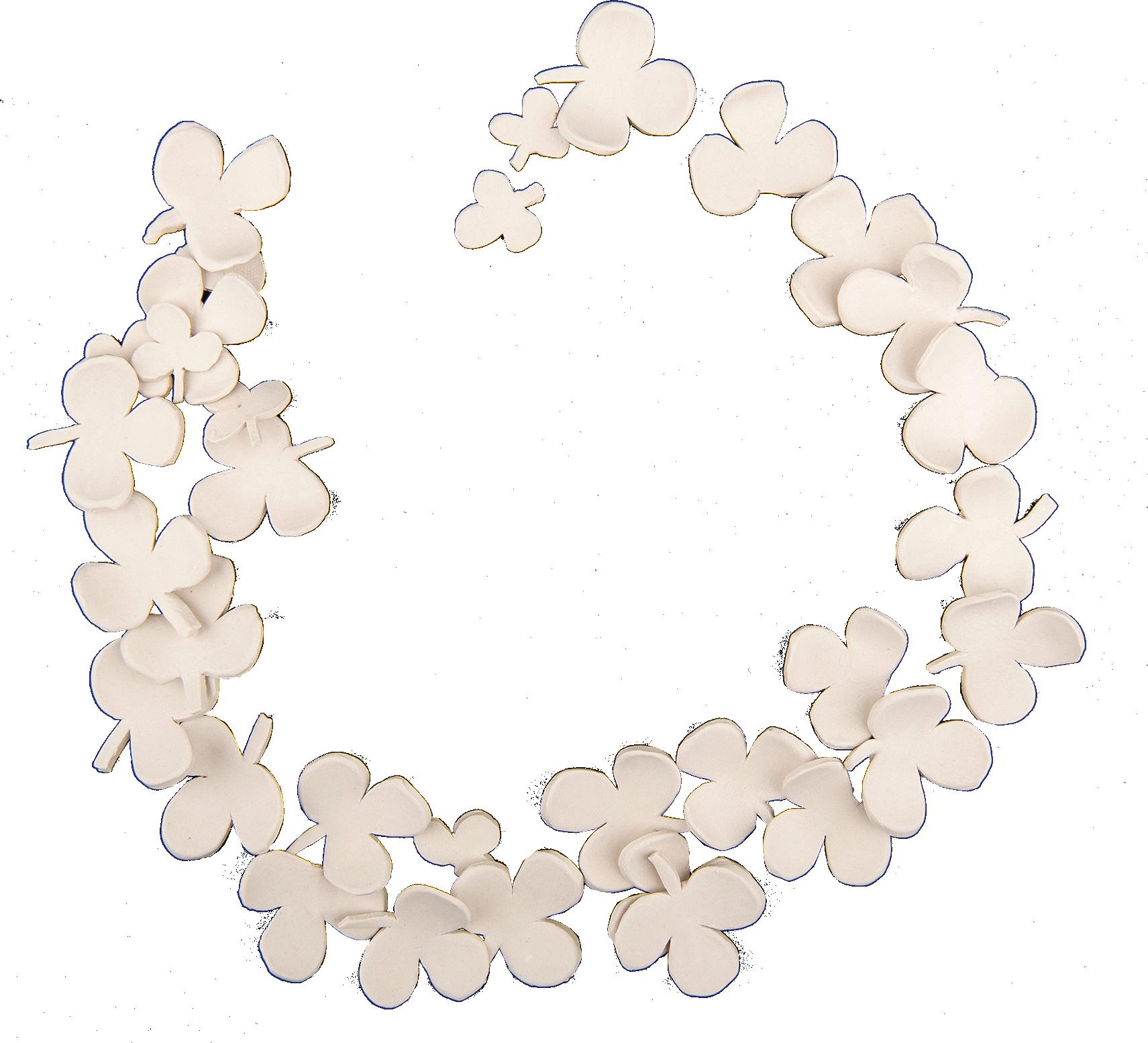
The second time I saw the stars was in the rain. At camp, my cabin plans were canceled because of the weather. Undeterred, my friends and I went in the rain to dance. It went from three people to five, to our entire cabin. Counselors brought their phones to play music, we were so loud other cabins across the camp heard us and joined in. I had never felt so beautiful before, seeing others dancing and everyone’s first instinct to join in. I danced with people I had never met and held hands with strangers to sing together. At that moment, I under stood why humans have always lived in groups. How it feels to experience something larger than yourself,
41
Lucy Hagen| Lucky, porcelain
to be a poet
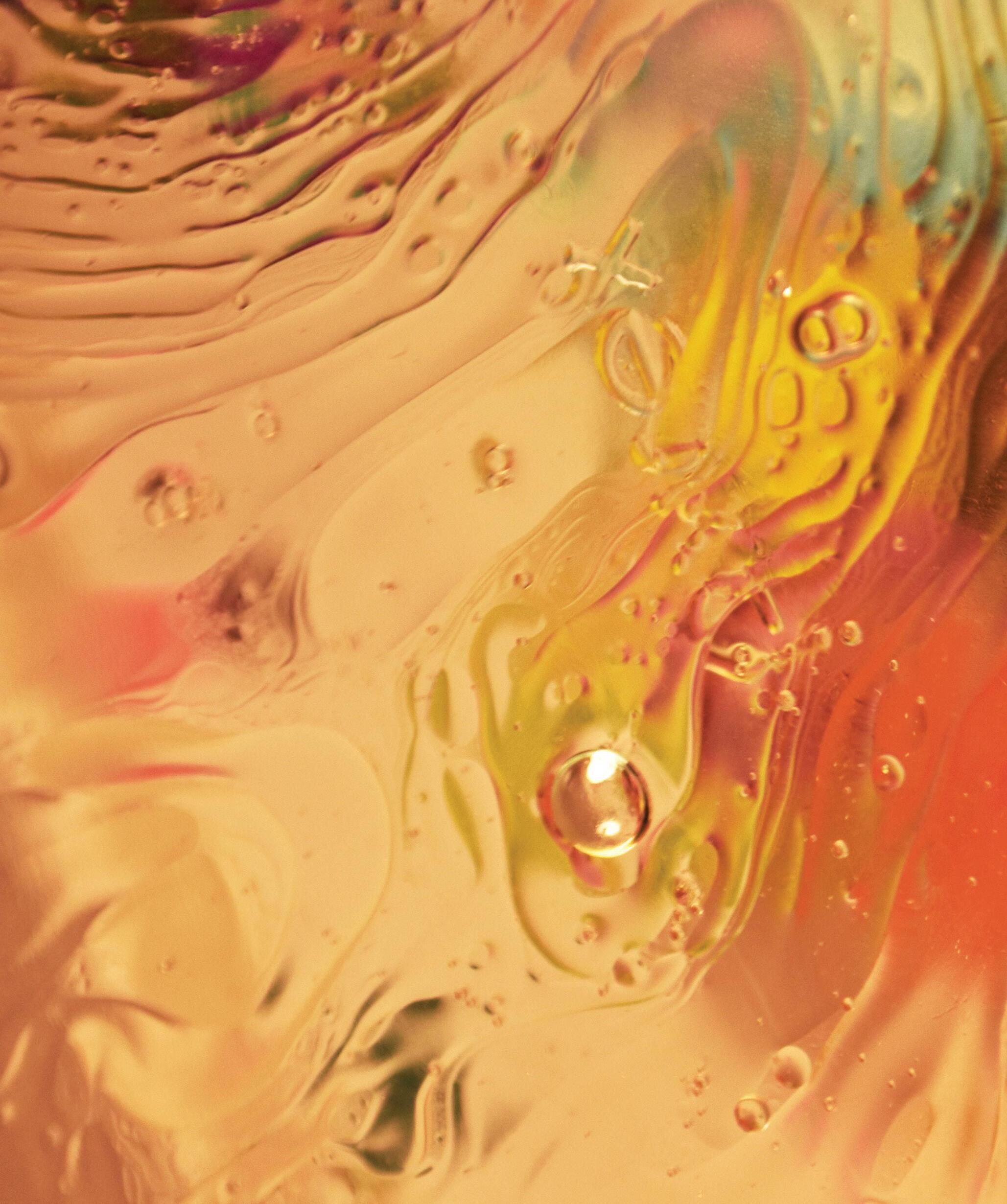
Poets are not proud, Of hiding between rhymes. Concealing feelings between syllables
Tucked inside the lines.
Poets are not artists, With paintings clear to see. To hide is to be a poet, to conceal is poetry.
So, here I sit. Writing meaning between lines. Waiting here for it to be found. Like I once did find mine.
Astro Getahun
AS
42
Alina Ahmad | Oil on Water, digital photograph
keening

how will your grief become you? who will you be?
how will you hold on to what you had? they shot me into space the earth died beneath me no matter how i rage and cry, i cannot go back so in my breath, i keep a pocket of air cold for you deep in my chest, i grow tendrils spreading aimlessly across realities in some universe, we were together in another, we can be again i only see you in the corners of my vision and in the footnotes of my dreams keep my body warm for me, and i’ll freefall home
Anneka Zimmermann
43
 Janey Rollenhagen
Janey Rollenhagen
Thelittle humans never look up at me. They never watch the ants crawl up my intertwining bark, or the blue jay build her nest in my branches, or how my leaves shrivel up in anticipation of the sharp autumn air, clinging on as long as they can, but never long enough. The little humans don’t look because they don’t see what I see. They don’t see the birds fly by in their triangular pack, never leaving one behind. They don’t see the sun rise and set, painting the sky with motley pinks and blues and yellows and purples. They don’t see the speckled stars illuminating the darkened night. They don’t see the shapes of the clouds: sometimes an elephant, or a dinosaur, or a little human, or a tree.
But I think they might look up if they saw all of this.
I miss when I was a little tree. When my bark had grown all but to the length of two arms. Two little human arms wrapping around me. Or a little human back leaning on me, hiding from the eye of the glaring sun. Or a little human hand reaching for a branch as they nimbly ascend my trunk. Because even from their winged air-mobiles with the tiny windows, they don’t look out. I know they don’t. The little humans don’t see the tops of their heads looking down at the world from the ground, or barely noticing it at all. They don’t see the monotonous continuity of their lives that I see from above. They don’t see my world that they aren’t a part of.
I miss the quiet girl who climbed my branches,
whose breath slowed when she saw the blue jay’s nest as the setting sun enlivened the sky. I miss when she would name the clouds and my leaves or the ladybug crawling up her finger. I miss when she refused to close her eyes, terrified that even in a blink something beautiful would escape her. I miss when she would fall asleep, nestled in my branches. I miss when she would tell me about lying in a lavender field and squinting up at the sun — I don’t think she knew I was listening. I miss her smile when she saw the world from my view. I miss when she came everyday until she tried to touch a star and stepped where there were no branches. She had never looked so small.
And then the humans made the talking rectangles that live for them. They watch the blinking lights and stare into another world, but it isn’t a real one. And I wish they would just look up. Because I want to stretch out my leaves to shade and I want to sturdy my branches for climbing and I want to feel two little arms wrap around my trunk in embrace. And I want them to see what I see because they walk and talk and cry and laugh, but they never see. I stand tall and still, except when the soft summer breezes tickle my leaves and the harsh winter gusts fight against my roots. I am forced into idle observation, and yet I’ve seen everything.
Except I haven’t seen Today. Today, a little human drove up in a maroon pickup truck with paint chipping on the edges. He got out and he looked up at me. I had forgotten the stare of a human eye.
L O O K U P

I had forgotten what it was like for a little human to look up. I outstretched my leaves to shade. I steadied my branches for climbing. He extended his hand and ran his calloused fingers along my bark and he smiled. But it wasn’t like how the little girl used to smile. And then more little humans came with their big trucks, and they looked up at me and they laughed. My roots tightened their hold in the soil because these little humans didn’t seem like the girl who once climbed my branches. They hauled sharp machines with grinning teeth from their big trucks. I wondered why they brought their big machines, I wondered why their eyes scoured up and down my trunk. And I thought that perhaps there are some things I don't know.
And then I did.
I knew their loud machines would rumble and tear into my flesh, I knew the grinning teeth would splinter my rough bark with every cut. I knew my branches would shake from the force and my roots would struggle to hold on. I knew that as the cut grew deeper my balance would grow weaker. And I hoped the grass was soft.
There are no more crawling ants or the blue jay who builds her nest. I can’t see the bright colors overwhelm the sky as sunset approaches or the flock of birds cawing by. My roots lay detached and lifeless below the soil.
The humans look down now. They don’t seem so little anymore.
45
| The
Averill Simonc
Last Birch, oil on canvas

From FEAR to FRIENDSHIP
Lana Cvijetnovic | Anxiety, oil on canvas
46
Kendall Adams

“What if I don’t like the food?” and other questions filled my mind as I berated my mother with my concerns. Walking across the street from school, I would look up at my mom, my face filled with fear. Without missing a beat, she would respond in a level tone to soothe my worries centered around the approach of my first year at summer sleepaway camp. And yet, my apprehension for the summer to come only worsened with each question she answered.
And, then, the day arrived. Before my big adventure, my family and I had stayed for two weeks in the Adirondacks in upstate New York as we always did. Maybe the familiar sight of the vast lake and the bright reflection of the sun across its glassy surface as my twin sister, Charlotte, and I jumped in and ruined its perfection, calmed my nerves before my great adventure. Or perhaps the overwhelming scent of pine trees at every moment relaxed my senses. Regardless, my dread for summer camp seemed like a fleeting memory. Or at least it felt like that during those two weeks.
But when we boarded the plane from New York to Maine, all my unease came flooding back. With each step I took, more butterflies filled my stomach, and my legs almost went numb. I had never stayed apart from my parents for more than a single night, so three and a half weeks at camp seemed like it would stretch on for eternity. We landed in Augusta, Maine, and then began the 45-minute drive to camp. All the while, I silently prayed in the back seat that the drive would last forever. I heard only the sound of the car as it glided down the smooth pavement.
I tuned out the music, and I tuned out my parents’ mindless chatter. For those moments, I felt alone in the car even sitting just inches from Charlotte as I sped toward my greatest fear.
Along the way, we stopped at a small roadside store. Typical Maine corner store, made of gray wood, lobster everything covering the walls inside. We picked up a few travel games, decks of cards, and other small trinkets, my parents likely hoping Charlotte and I would be able to share these toys with any new friends we made.
My mind focused elsewhere. Making friends, while important to me, seemed meaningless compared to the fact that I sped toward certain death.
When we turned down the driveway, my final pleas to turn around and save myself were met with deaf ears. My parents reminded me that if anything this would be a good experience and I might have the time of my life. I rolled my eyes, certain they were incorrect.
We drove up to the drop-off area. Cheering counselors in bright red shirts started knocking on the clean glass windows of the rental car. They shouted welcomes and held big colorful signs in the air. I slouched down as far as I could in the seat, hiding from the five pairs of eyes peering into the car, and begged my parents to roll up their windows and speed away.
Ellie and Sierra, the counselors assigned to me and my sister, rushed out with a decorative red sign with the names of our cabin mates and me on it. Their high energy only made me more nervous, still in disbelief about being abandoned in an unknown
47
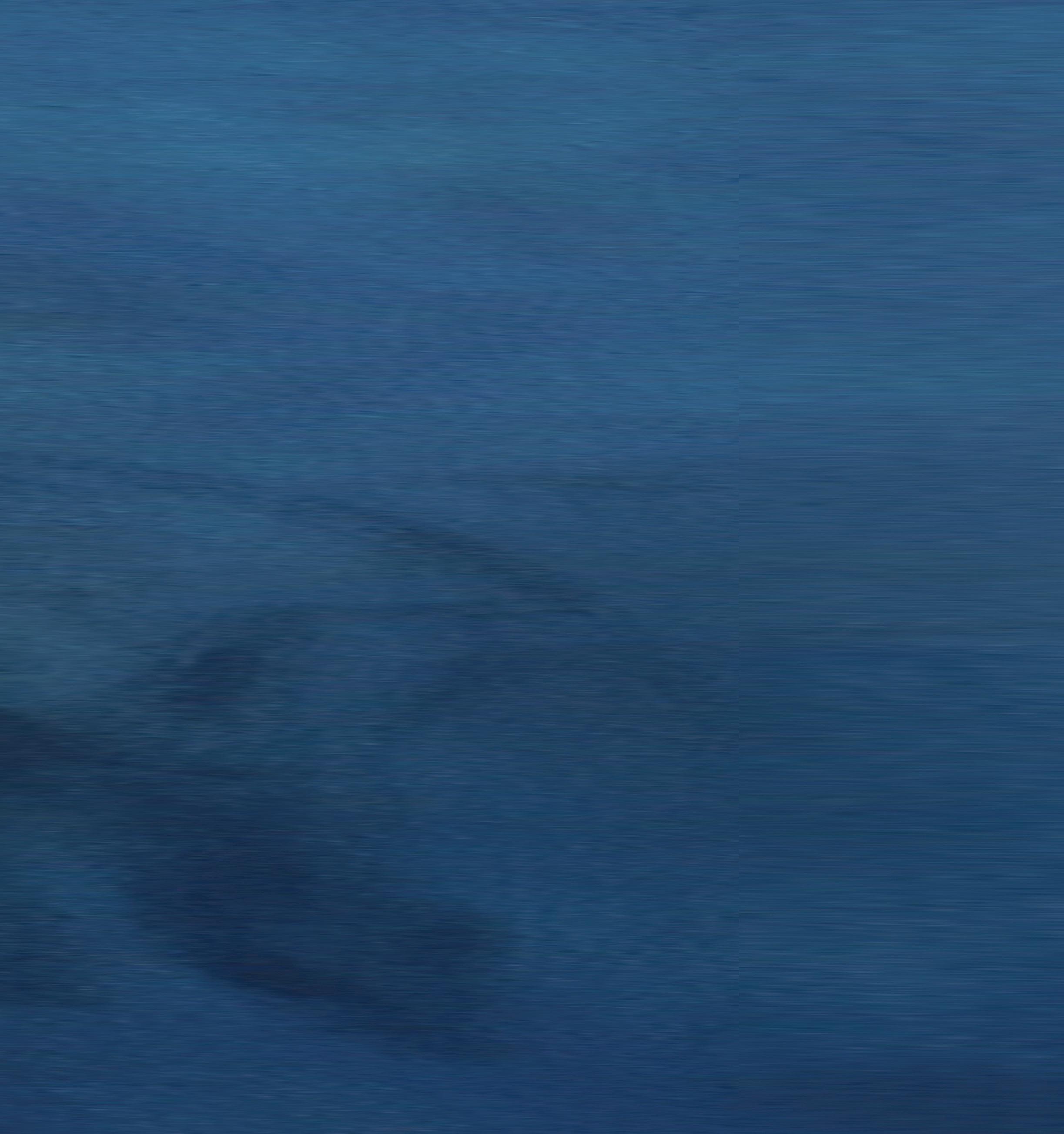
place. Ellie led Charlotte and me down the long gravel driveway to our cabin. My parents trailed behind, carrying our many bags filled with camp tshirts and our newly purchased games. Ellie’s neverending questions scrambled in my mind: “Where are you from? Isn’t Maine just beautiful? What are you most looking forward to? Have you ever been to summer camp? You’re going to have such a great time!” Our one-word answers did not slow her down. When we got to the cabin, the slamming of the screen door behind us made reality set in.
Ellie showed both of us to our beds. Mine was a top bunk right next to the fireplace, making me smile for the first time since we had set foot in Maine. Ellie’s beginning to help me unpack overshadowed my excitement. That’s when I realized I would have to live out of a small wooden cubby at the foot of my bed for nearly a month. This fact had not yet made it to my list of worries, but suddenly it shot to the top. My parents smiled at me by the door, and Ellie began to usher Charlotte and me toward them for our goodbyes. This bug-, heat-, and sunburn-filled nightmare would be my home for the next month.
Rather than say goodbye, I latched onto my mother’s leg, wrapping all my limbs around her so she wouldn’t leave me behind. After several failed attempts at persuasion, Ellie finally peeled me from my mother. Once Charlotte and I said our final farewells, we watched with longing as our parents walked back up the long driveway we had just come down. Ellie encouraged us to continue unpacking, but we just stared.
When more of our bunk-mates arrived, the small wooden cabin moved closer and closer to chaos. Shoes littered the floor, towels hung on rafters, and t-shirts covered beds. The shouts of fourteen homesick eight-year-olds fill the air, screams for a forgotten hairbrush, cries for an absent mother, and pleas for the comforting embrace of their own beds at home echoed through the dimly lit cabin.
Against all odds, however, Sierra and Ellie managed to wrangle us all and get us to flagpole on time. They explained to us that flagpole was an event that occurred before every meal, where each cabin lined up in front of the flagpole and listened to the announcements. We trekked up the hill, which already felt like a mountain. We lined up toward the far end of the flagpole as the youngest cabin. The smiling faces of teenage girls intimidated me as did seeing the warm embrace of friends who had reunited after a year of separation. Despite the happy scene, my certainty of my misery remained.
We walked up yet another hill to the lodge, a large, wooden structure with a steep stone staircase leading up to the double screen doors. Everyone squeezed through and rushed to get to their table first. I escaped nearly getting trampled by several thirteen-year-olds and reached my own table. Holding back tears, I allowed Sierra to put a piece of pizza on my plate. Charlotte and I exchanged knowing glances of terror, devastation, and worry. I only nibbled at my pizza. I heard laughter, but it seemed distant and disconnected from the whirlwind of emotions engulfing me.
48
That first night, we had an evening activity during which we met our camp sisters. The camp had three divisions, separated by age, and one girl from each division was paired together in a trio of ‘sisters.’ I waited, sitting on the cold concrete floor to hear my name called. When it was, I stood up and walked away from the big group still awaiting the calling of their own names. I sat crisscrossed in a small awkward circle with my two other camp sisters, silently staring at a leaf in front of me and too intimidated to talk to new people so much older than I was. I met their introductory ice breakers and other feeble attempts to talk to me with small nods or headshakes.

Back at the cabin, the counselors announced lights out. We got fifteen minutes of “flashlight time,” where people could read a book, write a letter, or go to sleep. I chose the unspoken fourth option: to cry silently in my bed. I missed my parents, I missed my own bed, I missed my friends, I missed everything. I wanted nothing more than to go home.
Looking back on this memory of the first day of my first summer at camp, I am surprised at how many vivid moments appear in my mind. I thought I would never have to go back there, but I returned for seven more summers after that one, and I even became the smiling teenage girl warmly embracing friends as we reunited after each year of separation.

49
Winter's Night
In the cold of a winter’s night
The moon drapes itself
In a dark velvet cloak
The breeze sings hymns
Of ancient warriors and paladins
Whose bones rest far beneath my feet
The barren trees resemble
The final reminisce of past heroes
With no legacy proceeding
What is a hero; a man at its core
But ash and hollowed, ivory skulls?
I sit in solitude surrounded by saints;
The stars above whisper,
“Look! Look what your kind has become!
The birds no longer chirp, they screech
The rivers no longer flow, they lurch
Man ravages the soil then demands from us ‘more, more!’
How much longer will you leech?”
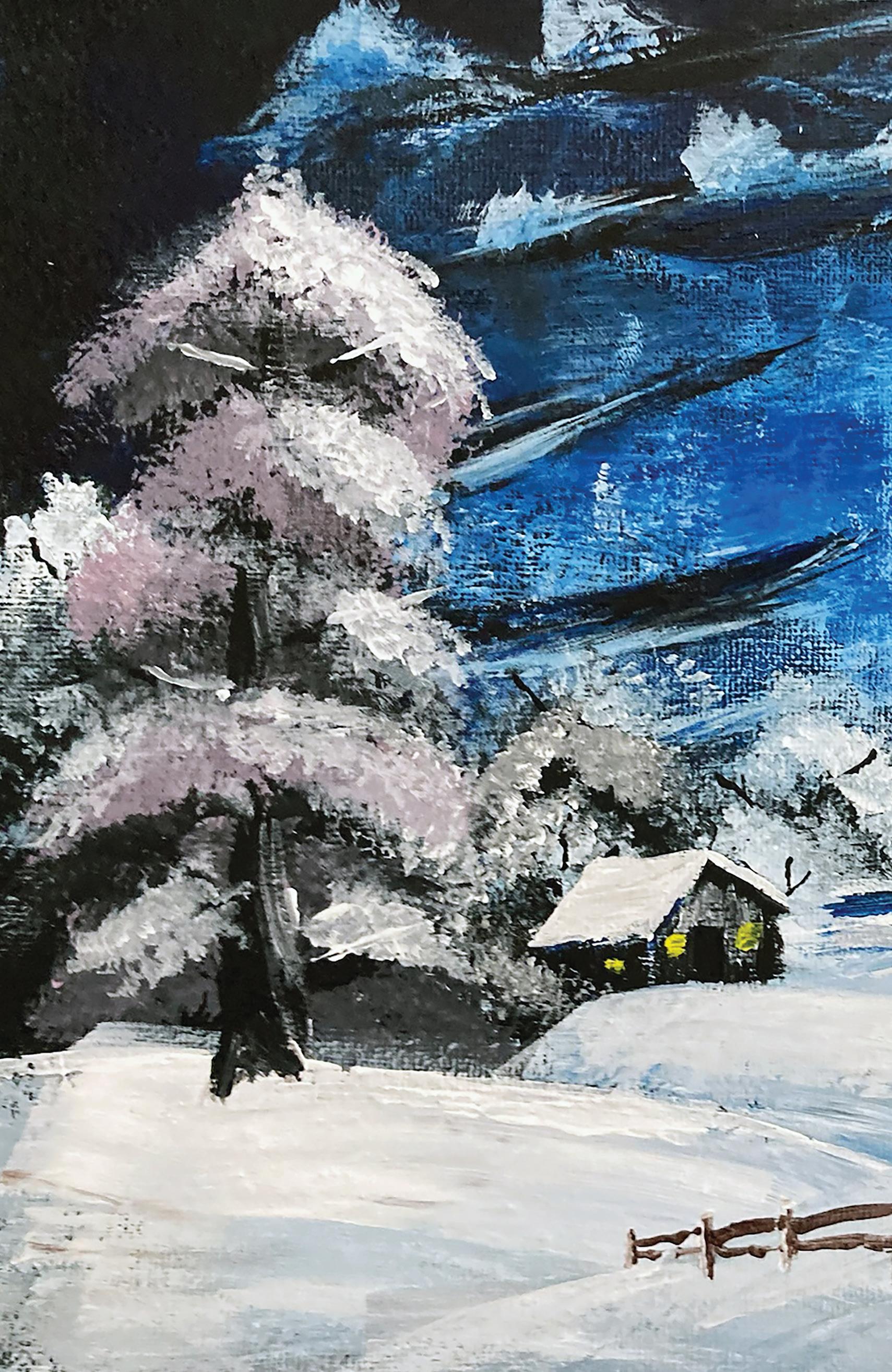
50
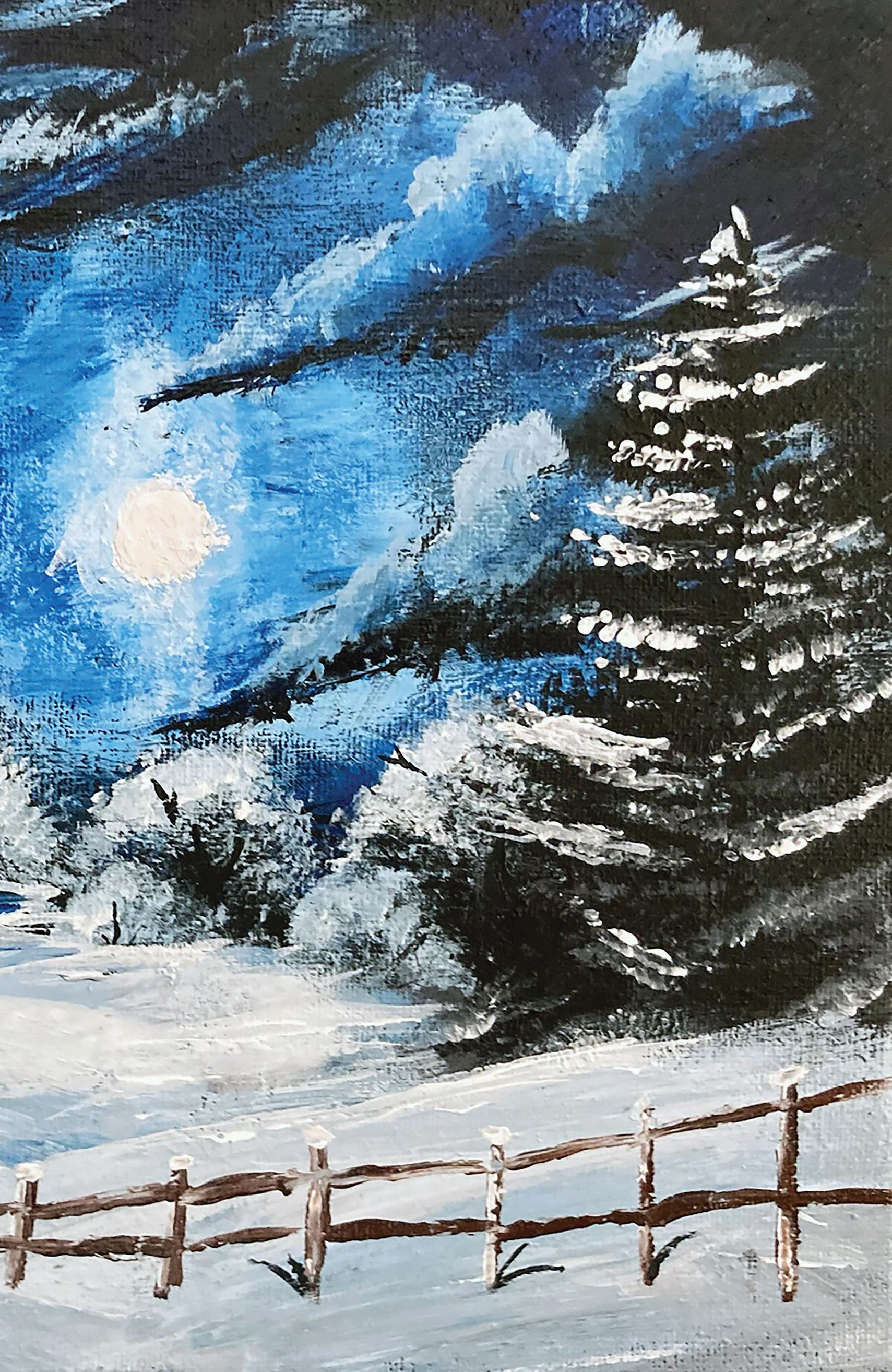
The echoing voice stings my soul
While my icy hands burn like coal
The void of sky silences my calls
Nothingness surrounds me
Except for the vast caps of blizzard peaks
Without a moonlit path
I have no way home.
I am writing
In hope that you may find
My captured soul
For what has replaced it
Festers and molds
And my heart withers in whole
However the voice of the gods
Still rings in my bones
Demanding justice for our sacrilege
Crying out, “Our glory may have been stolen
But our fury never gone.
May in beauty you find our terror
And fear our looming song.
Your king’s crown holds now power to the flame
Of the power used on land nature comes to claim
Mary Claire Gilbert
51
Cecilia Holdo | Nature's Soul, oil on canvas

past vs present Charlotte Lipman
52
Angela Mastrostefano| Ballet Class, oil on canvas
“Girl,
you look like a trainwreck!” Amanda’s voice cut through the free program music playing over Skate Frederick’s crackly loudspeakers as I slowly skated up to her.
Title of Piece author
First para text Past vs. Present Charlotte Lipman
“Gee, thanks.” I rolled my eyes and set my water, keys, phone, and guards on the boards in front of her seated figure, a full Lululemon outfit covered in a giant Vera Bradley blanket with a mini space heater close by.
“You’re only five minutes late today. I’m proud! Take a couple laps, and then you can tell me about practice.”
Mondays at 3:30 — one of my two weekly lesson times with Amanda — were usually when the rink started to get crowded. Even long before rush hour, Rte. 495 was a complete mess (per usual). By the time I peeled into the parking lot and grabbed my skate bag, I had a whopping 60 seconds to lace up both of my boots.
I reached into my vest pockets to grab a pair of gloves. Looking down, I saw a Ziploc bag on top of Amanda’s overflowing purse. Craning my neck to see its contents, I discovered it was full of sliced cucumbers and green grapes. “Can I have some? Just one of each and then I’ll go!”
Amanda looked up from her phone to raise an eyebrow at me. I responded by opening my mouth and looking at her expectantly. She scoffed and reached into the bag to grab two pieces of produce in her manicured fingers, putting them on my tongue. I smiled at her with a full mouth and took off to start my typical warm-up. Half a lap of forward slaloms, then switch to backward, then do the same for powerpulls and crossrolls. After the basics were done, I stretched my hips until I heard a sickly crack on each side. A quick arch to shake out my back after an hour of driving, and I was finished. My favorite and least favorite part of the lesson was here.
Having Amanda on Monday afternoons meant that the two of us could debrief my weekend practice, which I had barely thought about since getting off the ice the day before. I typically spent 35 percent of the hour talking about random things, 40 percent discussing synchro, and 25 percent actually letting Amanda coach me through drills. Six years of working together meant we had established a rhythm.
“So how was it this time? I know if it’s really shitty, you Snapchat me crying,” she stated.
I smiled at Amanda’s characteristic bluntness. “Thanks for stating the obvious. It was so terrible, I almost threw up.”
“Did you cry?”
“Not on the ice. I did in the bathroom during a Zam.”
“You do know that’s not normal for a coach to do, right? Pam may have been a c@*# who never paid attention to you, but she never yelled like that.” The mention of last season’s coach made me cringe.
“I do know that’s not normal. Cindy basically said I was a terrible skater who’s dragging the whole team down, which would have been bad enough, but it was in front of everyone. The vets told me that it’s just new girl hazing and it’s better for her to scream in your face than ignore you completely.”
“Jesus Christ, Charbar.” While comforting, Amanda’s nickname for me still didn’t fully lift my spirits.
“Yeah, can we talk about something else? I need to drill the combination spin she wants for the long and the twizzles.”
“Sure, kid, ” Amanda replied while looking at her phone.
“Who are you texting? Is that Chapin? Your kids are
53
going to kill you. They don’t like him.”
“They don’t have to know. I blocked him on everything.”
“Yeah, everything except for Tinder. You’re technically on the clock, you know.”
“Shut up and go do your spin.”
Saturday morning. Hackensack, New Jersey. 6:45 am. I followed Cat and Melody, the team captains, through the open door onto Sheet 2 to start the first two hours of practice. Instantly, a gust of icy wind blew into my face. My shoulders scrunched up my ears in discomfort as I walked to the door. The four layers I had put on were clearly not enough. I took off my guards and stepped onto the ice, my right arm swooping up in the air before I bent at the waist for our required bows. Once upright, I quickly found an empty spot on the boards and put my things down. The rest of the team was piling on behind me while the girls who went in front of me were speeding down to start our official laps. I took the first of many deep breaths and powered down until I reached the end of the rink. I did a few quick crossovers to get me around the curve, then matched whatever the person in front of me was doing.
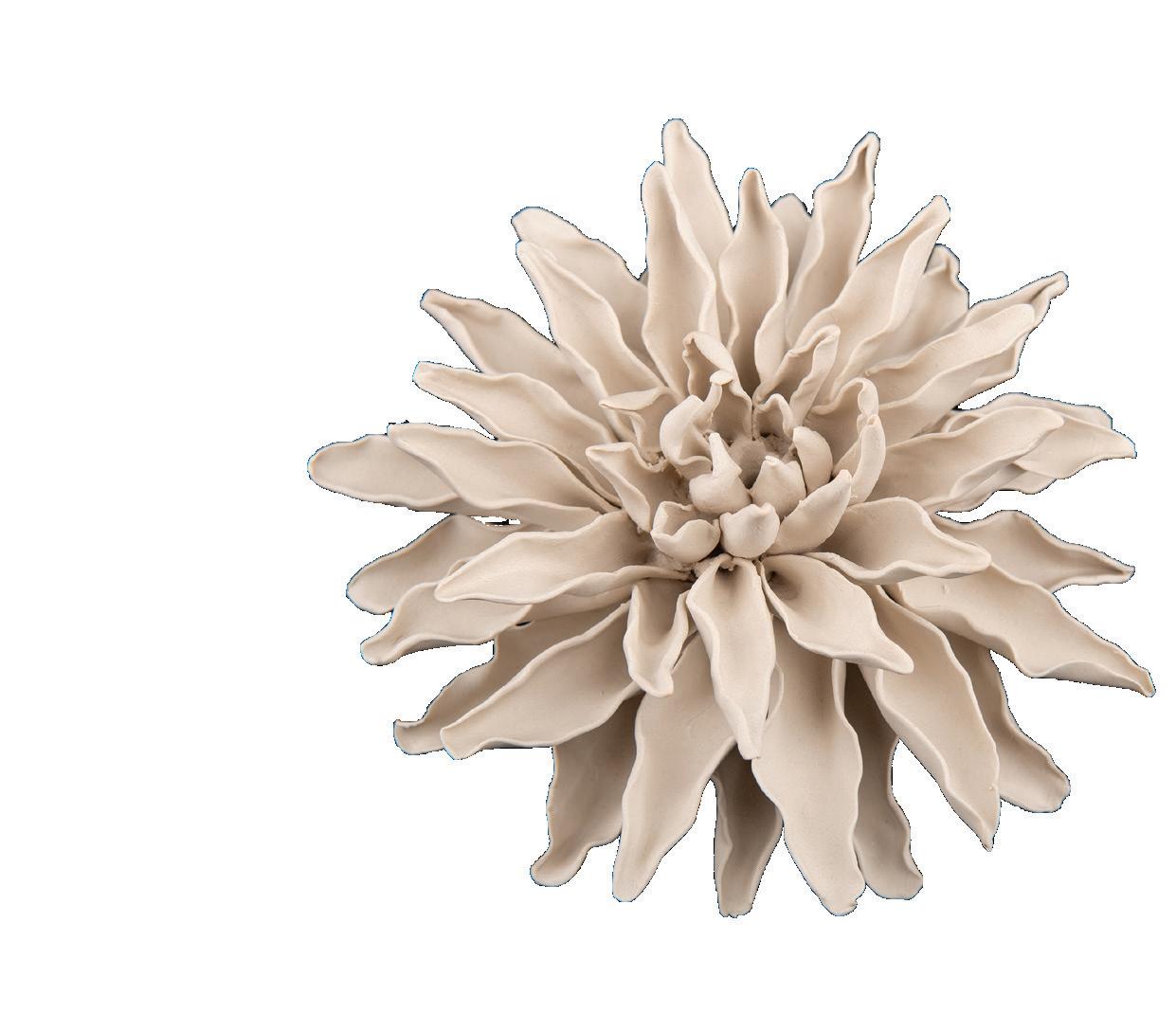
present. This was the worst part of the warmup because I had to stare directly into Cindy’s eyes for the first time that session. I held the extension of my final crossover as both arms formed a loose circle at my stomach. My free foot came in to touch my skating leg while my chin lifted in faux confidence. I spread my arms open widely so they morphed into a straight line, as I tried to look at our assistant coach, the boards, hockey victory posters high up on the walls — anything but Cindy. After holding the position for a few counts, I finished the salute took a deep internal sigh of relief for making it through without rebuke.
We went through our power circles as a team before getting a rare drink of water and lining up to start edge drills. Michael Jackson’s “Break of Dawn” began over the speakers, and I took my place near the back of the line. I took a quick look around to see who I would be next to.
Our small group formed two rows of two and presented yet again.
Bend, quick left right, BEND
The music abruptly started as I finished my lap. Three more lilting, powerful crossovers and I had to
BEND BEND, push and down. One, cross, two, cross, three, cross, four, cross, five, cross, lunge and UP! Chest up, arms up, feet together, HOLD and track to who’s in front . . . now start again. My internal monologue continued as we made our way around tight imaginary circles.
Sedona Hawkins | Flower, porcelain
54
“Hold my hand, feel the touch . . .” Michael crooned. I felt like I was melting into the ice, my brain so laser-focused it was impossible to think about anything else.
“Charlotte! Down and push!” I heard Cindy yell. I scurried to sink lower into my knees.
“More! Let’s GO!” My quads burned as I flexed my ankle as far as it could go within the confines of my boots.
“What the f@*# do you think you’re doing? Get over here! Now!” Cindy’s voice was loud enough normally, but the addition of her headset made each word even more jarring.
I nodded so passionately that I felt like my head was on springs. Some of the advice I received from my teammates reverberated through my skull. Never speak or answer a question Cindy asks unless she tells you to. Around me, the team had finished their edges and begun to stretch. They tried not to look at the scene going on a few feet in front of them.
“You can’t just waltz in here and act like you’re better than everyone else. You’re not. You have a lot to learn about this culture and this team. Our mindset is different. You’re dragging the entire team down, and I’m not letting you do that to these girls. They show up with a fight. A hunger. I’m not sure what they did on your other teams, but we’re not like that.
She’s right. What are you doing? It’s literally just crossovers. This is the simplest drill and we do it every practice. My initially boring thoughts became frenzied, nearly manic. I clasped my hands behind my back and brain go, ‘Oh shit! Cindy said push, so I need to bend my knees and PUSH.’ You choosing not to fix it shows me that you’re defiant and don’t give a f@*#.”
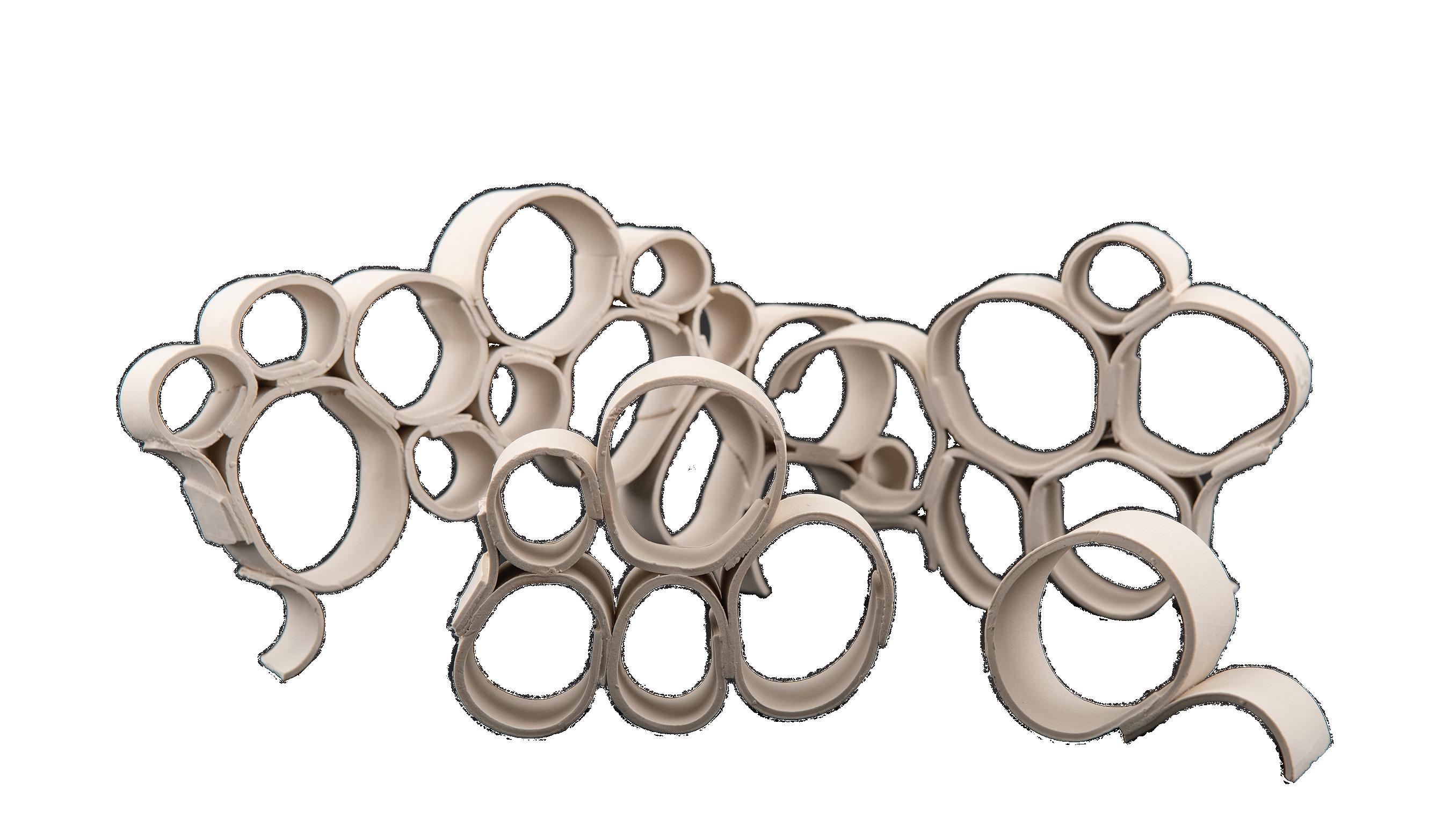 Westerberg| Circles, porcelain
Westerberg| Circles, porcelain
55
Grace

Speed unbroken, you
Ode to the Bicy c list that I a lmost Hit withMy Car the Other Day
Split off the walk, the traffic
Parted before you
Powerless, I could but watch
And brake, you bike ever on.
Julia Ryan
Ava Barber | Happiness | oil on canvas
56

PSEUDOBULBAR AFFECT
“a condition marked by episodes of uncontrolled crying or laughing”
I love seeing you smile, seeing you laugh, seeing your teeth escape the bonds your lips keep them in. I love being the one that makes you smile the way you do,
Because not only does it make me feel special that the front part of your brain has allowed me to activate it, But also because your laughter lights up the room, makes others’ lips release their bondage to the teeth it holds in its encloser,
An enclosure that is free of light and ecstasy,
An enclosure only I am allowed to slip in.
You tell me no one else can make you laugh like I do,
But I’m soon struck with the realization that your laughter is something you cannot control, something that pains you. And that emotion that has struck me like a lightning bolt hits me again and again as if

I’m standing in a thunderstorm holding a metal bucket filled with darkness,
And that darkness splashed out of that metal bucket,
It hits my skin and enables its millions of particles to sink into my bloodstream and slip, slide, and take control of my mind, body, soul, and spirit.
Suddenly, I despise making you laugh. I hate hearing the sharp, pointy pitches of your laughter that hit my skin and poke me and make me bleed, I hate seeing your chest bob up and down, fearing that tears will escape your eyes seconds later and cause that darkness that’s already in my bloodstream to spill out of every part of my body,
Ripping me apart and creating a hot, sticky mess that’s melted out in front of you.
Erin Guven
57
Mary Claire Gilbert | Flames, oil on canvas
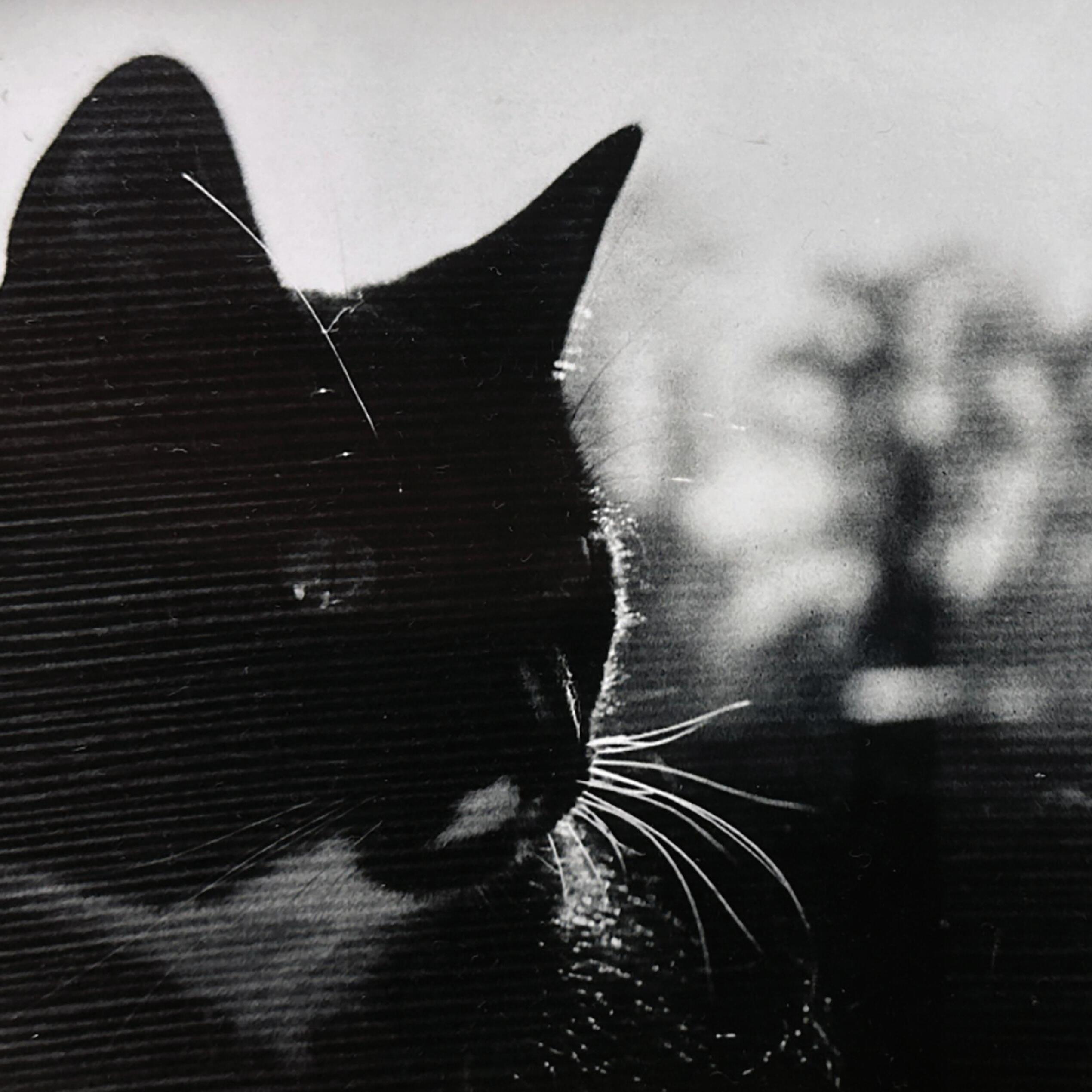
58
Samantha Coulman| Black Cat, silver gelatin print
Death
Title of Piece author
Sophia King
First
Death
para text
is sort of finicky. People talk about it like an old friend. I think of it as a trade-off. “Eye for an eye” incarnate. I see Death as a pair of spindly hands with bony knuckles rapping on innocent doors and long pointy fingers beckoning us closer. Death is a thief waiting to slip its hands into someone’s life and leave behind its calling card: grief. Death is not a friend. It’s a cruel crook cursing us all from beyond . . . somewhere.
The worst part about Death is you can never plan for it. How come we can plan for life in every sense of the word, but Death is unexpected? When a person announces they are pregnant, gears begin to turn. Elaborate plans are discussed and constructed, rooms are decorated and painted, and corners are rounded and softened. Space is made for life. Ample space. Death, on the other hand, only leaves behind that space and, yet, offers no conciliation for it. Even funerals are meant for the living, not the deceased. Life is given space. Life is beautiful. Death is ugly, unfair, and unkind. Life is marvelous because it’s a gift that can be bestowed upon anyone, even cats.
We discovered Darcy was pregnant once it was too late. It was already enough of a responsibility to take care of two cats. What were we going to do with a whole litter of kittens? As much as we love our cats, my family is full of people who are decidedly not “pet people.” I never know how to interact with a dog, and to some degree, I think they can smell my fear.
As a child, I hated visiting the animals at the county fair. I didn’t see the appeal that my friends did. Once, I
witnessed a cow giving birth. For some sadistic reason, the cow was “staged” in the center of a large barn with bleachers all around it, so everyone could watch and admire as a calf was pulled from a cow’s vagina. Marvelous. I felt traumatized. I just wanted to ride the roller coasters and fail to win a stuffed animal from a rigged game. I was not emotionally and mentally prepared to listen to a calf make its first sound while covered in blood and ooze. I watched as it took its first steps, wobbling on shaky legs. I had the fleeting realization that this calf would be on someone’s dinner table one day, but my friends didn’t appreciate my observation. Instead, they clapped and begged their moms to take pictures to immortalize this moment forever. I felt like I was intruding.
I felt the same way when Darcy finally gave birth. Unlike the cow, she brought four kittens into the world all on her own on the bed we had pieced together for her. Even if rooms were neither decorated nor painted and corners were neither rounded nor softened for these kittens, space was made for their tiny selves. I would guess that they were small enough to fit inside my palm, but I never confirmed because I was terrified of hurting them. They were all pointy tufts of fur and closed slits of eyes. In just a day, Darcy had made space for life in the form of Oreo, Nibbles, Shadow, and Rambutan (the first three affectionately named by my little brother).
Rambutan was so named because of his orange fur standing up all over his tiny, tiny body. His small
59
figure instantly made him our favorite. Darcy, on the other hand, thought otherwise. She nestled Oreo, Nibbles, and Shadow in the warmth of her body but left Rambutan to curl up against her tail. I remember watching shivers wrack his slight body as he desperately searched for warmth and food — neither of which his mother provided for him. I remember frantically researching for an explanation and stumbling across a terrible understanding. Sometimes I wonder whether I would have preferred to live in a state of knowing and anticipation or whether I would have appreciated the bliss of ignorance. Either way, I knew.
We ran out to Pet Smart, searching for kitten formula and hope. We bought special gloves to hold his lithe shape in our giant hands. We hoped and hoped and hoped. His eyes never even opened.
Death is a finicky thing. It stole Rambutan before he even left the dim lighting of our basement. He was gone before the world could acknowledge he was here. We made space for him but that was not enough to deter Death. A week was all we had with him before those skeletal fingers snatched him away.
But how do you fill the hole that a kitten makes?
How does the world keep spinning knowing that life is dying? How do you explain to a five-year-old little brother why he now has three kittens instead of four?
How do you love someone that you only knew for seven days? How do you bury him after?
They say that everyone has a major event or two that serves as a marker in their life. “Before” and “after.”
Like a timeline, almost. If Rambutan is mine,

60
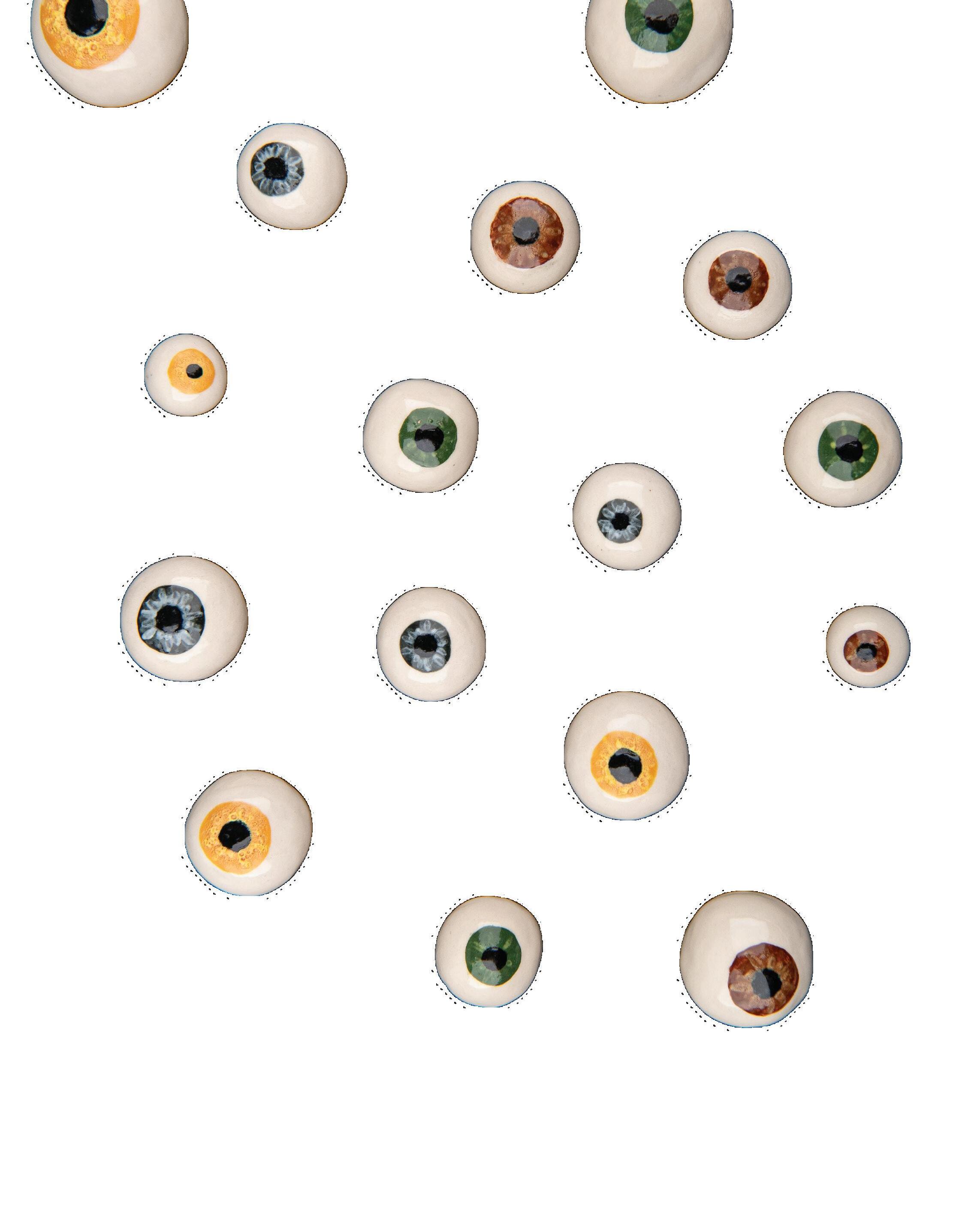
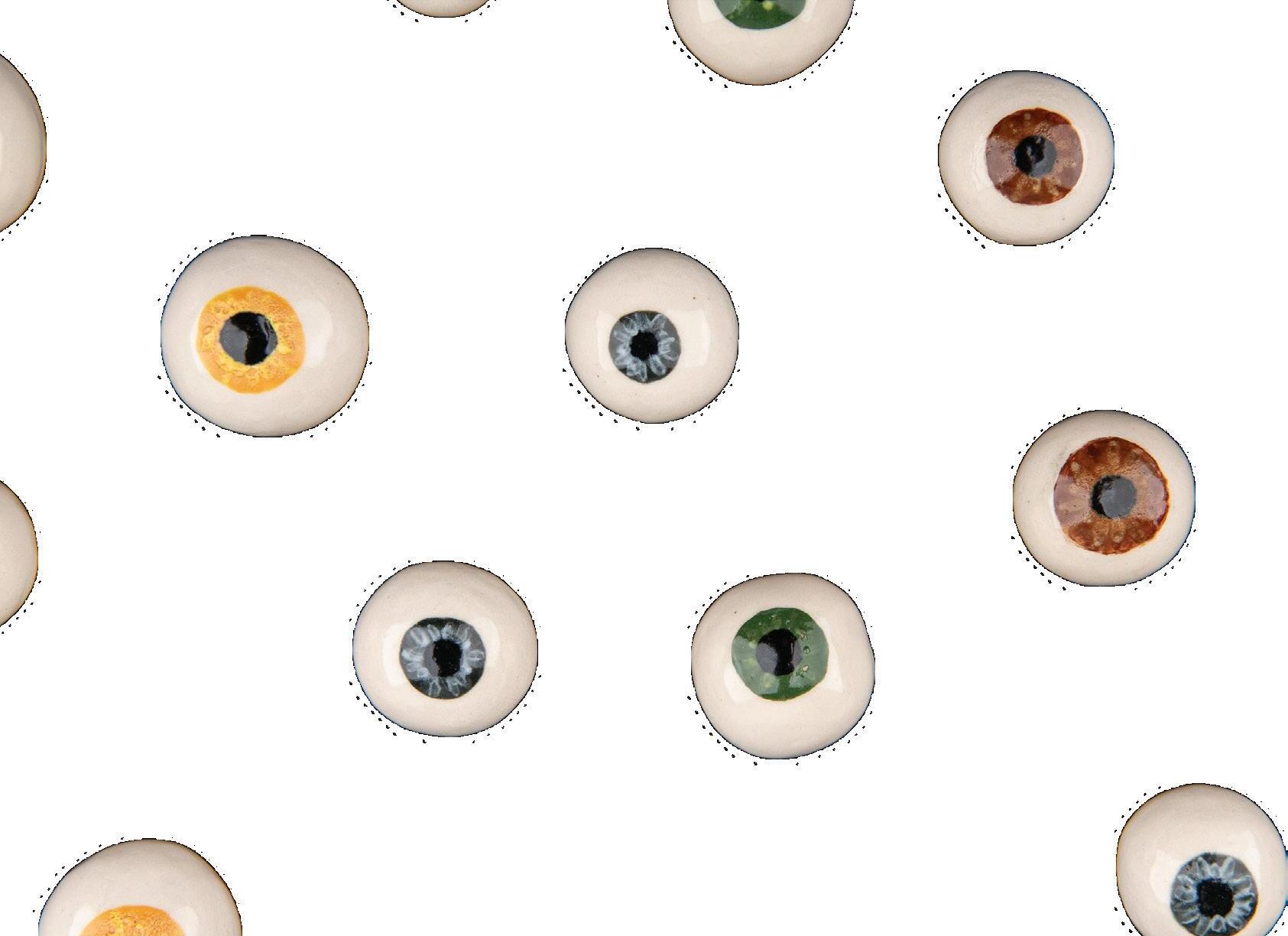
Love Letters
Holding Hands
Short, tall, hand in hand
Now shorter one is taller
Mother and daughter
Love, Claire Buchanan
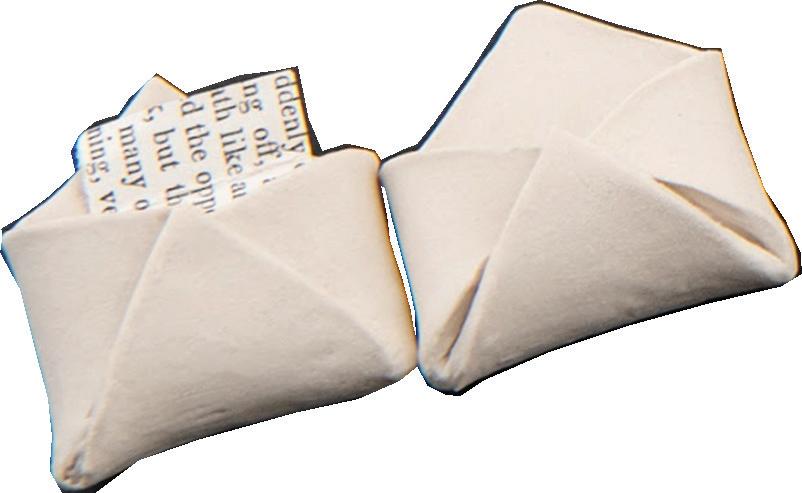
Summer
A warm summer day
The beach where I love to stay
Cheerful songs to play
Love, Mia Gyening
Squam Lake
Driving in, big smile
My lake, my trees, my family
Not my house . . . my home
Love, Claire Buchanan

Sound
First time headphones on Bus ride to school
Love is that first time
Love, Audrey O’Beirne
Ode to Avocados
Softgreentomytouch PitandpeelIscoopandtoss— Aagh,theyhavegonebad.
Love,JuliaRyan
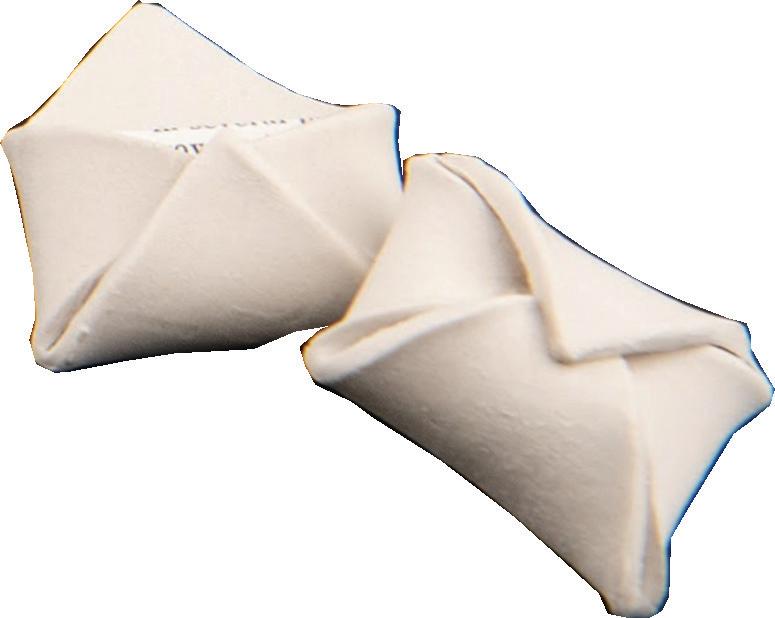
62
Leela Cohen | Love Letters, porcelain
Ode to Wundows I sit watching by
The gentle churn of seasons drifts
Fall to spring and on
Still I sit, I think I’ll speak
When I’ve something new to say.
Love, Julia Ryan
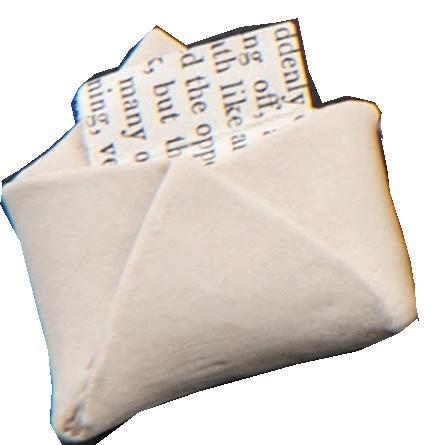
Ode Brothto
Tuck’d under noodles
Heat beats fresh life into me
Warm blood under tongue.
Love, Julia Ryan
Sunday Morning
My Sunday pancakes
Syrup, Chocolate, Butter
Piping off the stove.
Love,Mira Wissman
Holton
Thesehalls,sincefourthgrade Growingupovertheyears Holton,I’llbeseeingyou Nineyearshere,halfmylifetime Love,ClaireBuchanan
... for things we love
To My Family
Laughter and loving
Understanding if we fight
Always, we are linked
Love, Lila Brody
Ode to Snow Snowflakesfallinglikewhispers
Warmfluffyblankets
Softflameflickersinourhome. Love,NatalieTan
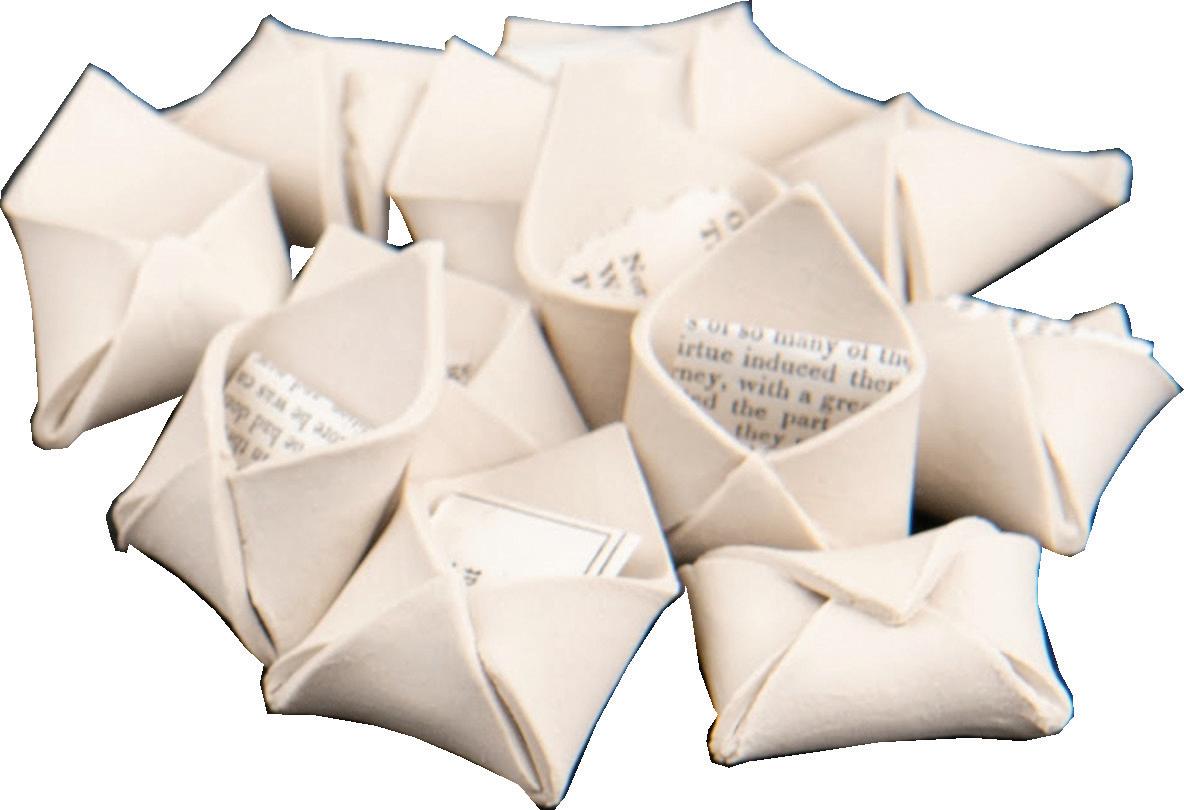
63
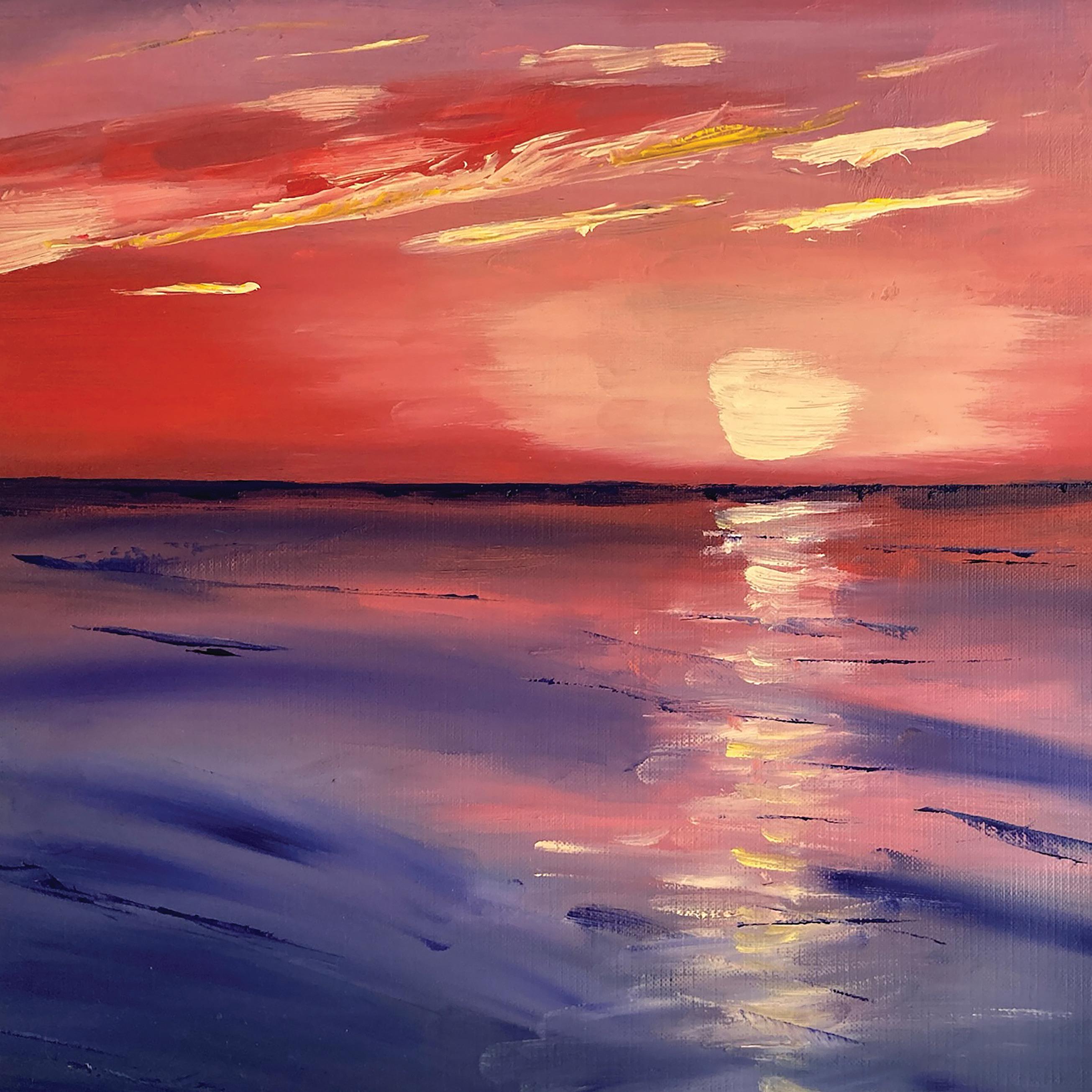
This Place
Cecilia Holdo| Sunset , painting 64
Lucy Berry

I stare longingly at the sight of it. This house. Ocean blues, faded photographs in 50-year-old frames. The shingles, replaced every-so-often, going from plain greige-brown (Yes, that’s a real color) to old, damp taupe. Trickles of Atlantic seep into the wooden panels of the exterior, with little bits of moss lingering along their edges. The creaking of the baby-blue screen door, the distant sound of the steamship. All of it, everything– it leaves me full.
The journey to this is worth it: An eleven-hour drive — ten if you’re lucky — and a two-hour boat ride before another ten-minute drive to the house itself. Vast, endless stretches of highways and infinite yellow lines torture and tease me. I cannot wait for it to end and for the exit signs and traffic lights to blend together and leap up and into the bay ahead. Soon, we arrive, stepping out of the car and smell the salty air. Next, we check in at the Ferry Association before finally heading to the lobster joint just down the way. My mother and I return, arms full of brown cardboard boxes, oozing with lobster juice and chicken tender grease. These will be our last tastes of the mainland for weeks, but honestly, we could care less.
You listen for the waves and for calls of seagulls from above. Their cries tell you you’ve arrived. You’re home. Home again, for the summer.
It’s easy to say I leave the better parts of myself here every year.
I eagerly hurry to the front door, unable to contain myself. After a gruesome half-hour of back-andforth lugging our endless stream of bags, I plop down onto my bed. I’ve slept in this room for years, with it seemingly never changing. The red, wooden bed frames, painted by my hell-bent and determined grandmother, or the white chest of drawers, handpicked by my mother at some small-town auction back home. All of it — All the same. I let my body seep into clean sheets as I take in their refreshing scent. The next time they smell and feel this clean, bags will be packed, skin will be burned, and the house will look as if it had never been touched.
The sun is setting, we know this. Still, my mother insists on a last-minute trip to the beach. I trade my sneakers for sandals and my bra for a bikini and hurry to the car, hopping into the passenger seat, towel and sunglasses in hand. Windows down, the drive to the closest beach itself is three minutes max. Just enough to get to the bridge of a Taylor Swift or Beyoncé song.
We reach the beach. Our haven. That first day my mother will swim out, far, far past where toes touch the ground, letting the water overcome her. It’s too cold for me right now. I’ll wait until tomorrow. I always feel guilty about that.
I know this place better than I know myself. I know which shelf the cereal is kept on or which towels in the basement closet are for the beach and which ones are for the bath. I know where the art supplies are or
65

how to turn on the rickety, rusty hose. I know to never sit on the perfect, ivory white sofa after being outside at the beach, and I know that, regardless of that prior rule, the dog has free reign over any seat he so desires.
Here, my hair is always damp, skin sticky from salt water and ice cream. My cheeks and shoulders stay infinitely burned, no matter how much sunscreen I apply. I look around. I see my grandmother’s chair. The embroidered fish pillow accompanying it has been there since before I was born, always patiently awaiting her return. My grandfather’s chair, across the room, with a direct view out onto the patio over the backyard below. The terrace door is cracked open, the brick fireplace is lit yet again, and the dining table is set for six. The countless photographs of family and friends spanning back decades. And, oh God, the books. Years upon years upon years of books, an endless surplus never running short.
Speckles of dust in the air float, revealed in the bright, warm light of the skylight above. They remind me this place has been waiting for me, calling my name for those dreadful winter months, begging to be lived in. When I’m here, I remember to cherish the little things, to embrace the benign and accept the inconvenient. It reminds me that to worry, in a place like this, is an insult. So, rather than dreading its end, I welcome each second. I’ll pretend that tomorrow the waves will be gone, and I’ll remember to feel this place through every family meal or midday ice cream or grocery run or the ruffles of my blouse. I feel this place infinitely. It feels through me too.
Ashley Federowicz | Flowing through the Sea, terra cotta
66
Any Blue

I have carved calm indifference from my bedrooms walls
And found someone’s favorite color resting beneath.
Suddenly, I sink into a deep sea of blueberry skins
Bubble-blowing fish watch bug-eyed
As I break underneath water’s surface
And a great sky blooms above me
Rain descends like the stems of bluebells
Crystal breeze brushes my face like petals
Though they clog my ears and fill my lips
I feel the mournful wails of jazz
Filling my breathless veins
The jays and northern butterflies are strung out
Across the vastness before me like garlands
Ice like jewels is piled about my ankles
It melts in heaps and clumps
Into rivers, lakes, and bays
Which dissolve back into cloud and sky
And fall to earth again
As though within a caught snow globe
Shaken in a restless child’s hands
The fervor of life enters my mind
And is mellowed by the endless expanses that it occupies.
Julia Ryan
Britt Nordquist | Sailboat, digital photograph
67

68
Addison Burakiewicz | Branching Out, silver gelatin print
The netting keeps the mosquitoes out
But it keeps you in
I stand on the other side
Watching your sticky fingers
Prod their way through the holes
She says keep away from the lead paint
On the windowsills
Talk on talk on
You’re focusing on the screen instead
Testing the dark clouds
Measuring the eager air
Anticipating the change
The crow watches the owl
And the owl eyes the cat, waiting
It’s your mind’s foul
Think on think on
Cecily Brooks S u m m e r S t o r m s
On your little palm the water floods
I can feel it now
The same as I felt it then
In your pupils lightning burns
Fear knocks you to the ground
To your ears the thunder is a bomb
Quick, hide from the sound
Roar on roar on
I see her scoop you up in her arms
You smell that same scent
Her hair was longer back then
In that old musty blue chair
She has a book to read
Her voice, the steam from a cup of tea,
Ignores the storm’s greed
Talk on talk on
69

To
my Future Children: Thoughts After the Overturning of Roe v. Wade
Charlotte Lipman
on
70
Ella Ross | Happiness
, oil
canvas
AMELIE,
Your name rolls off the tongue, smooth and salty like the open sea. I can imagine your voice quirking up with the second syllable, curling in curiosity. The walls of your bedroom would be kelly green, your favorite color because it reminds you of frogs.
You’d want to be an astronaut, giving weight to your dreams every time you write them. Adults would ooh and ahh at you, the “little girl with big dreams,” with an imagination as big and broad as the galaxy you want to escape to.
You’ll want to get away from the world that was not designed for you because you won’t know how something so beautiful, with its deep oceans and high peaks, could harbor so much pain.
CARMEN
,
Glowing red, bursting with emotion, the ending crescendo to a song. You do not linger in liminal spaces; instead, you sprang into my mind ready to run.
I asked my grandmother to keep her dollhouse free of dust in the attic, keeping a home safe for you in the tiny furniture (even though playing with them furthers gender roles.)
You will have to bite your tongue and coyly bat your eyelashes when he tells you that a “pretty thing like you doesn’t belong in a place like this” and drink your silence like gasoline until you go up in flames like the Molotov someone down the bar ordered.
You will not tell him that you don’t belong anywhere except your mother’s womb because it is the only place you held value Even though you didn’t hold anything at all.
MAISY ,
A warm spring day with a cloudless sky and a fistful of dandelions falling out of your arms. Your hair is wild, moving in step with your flowy dress (just like the princesses). Mud caresses the hem and your scraped knees because even the dirt wants to be close to you.
Someone is calling us to “come inside” and the grass is itching the underside of my legs but I will give you one more minute because your ignorance is bliss.
I want to keep you like this forever, pouty lips curling up to meet the sunshine and I want to teach you that your body is beautiful, but in a place where even the word woman cannot be said without the word man your body will be his choice from the moment you enter it.
I will show you all the world when it is as big and kind as you’ll think it to be.
71

72
Rose Sussmann | Front Porch, digital photograph


Atice at idnight

night, when I am trapped in slumber, the mice gather in my attic to practice their ancient rituals and slippery spells. They wait for the dark stroke of midnight to chime its solemn toll, and they slip out of the walls on padded toes.
Dressed in black robes stitched by a single thin-spun thread, four mice carry a small-printed pamphlet with their secrets scribed inside. When they reach the gathered circle, they present their paws, so they may know that all there are fellow mouse-men (their robes cover their heads, so they know not the identity of the mouse before them). They speak in hushed, squeaky voices as they arrange themselves in a circle, each trying to pick out his own friend by the shape of their stature or the twist of their tail.
Eventually, they sort themselves out and succumb to silence as a Great Matchstick, whose brothers have burned on for the mice’s fathers, and their fathers, and their fathers before them, is brought out by a team of working mice like a battering ram. They maneuver it to angle against the ground and dart forward, striking it against the floorboards. A Great Matchstick lights for them, and, their worthiness confirmed, they proceed.
The eldest mouse breaks the circle to instruct the opening of the pamphlet. Two young mice flip the pages until the elder holds up his hand and points to a passage. They re-form the circle, and the elder begins. A Latin hymnal is struck up by the mousemen as the elder chants ancient script, eyes squinted in the narrow light to draw
out the black ink from its page.
As he arduously spits out each word’s sound, leaning heavily on his half-toothpick cane, the altar mice peek around the pages of the pamphlet, searching for the elder’s lines. Next to the flourished print of the original Latin is a hastily scrawled English translation:
“Keep me from the snares they have laid for me, from the traps set by evildoers . . .”
They jump as the priest slams his cane into the ground. The spell uttered, he fades into the chants of his men. Paw in paw, they scamper across the wooden floor, dodging the cracks in plywood as they circle the Great Matchstick. Their feverish chants grow in fervor, and they draw ever close to its beckoning flame. The smoke singes their whiskers, pulls tears out of their eyes, yet they begin to shout.
MUS musculus! MUS musculus! MUS musculus!
Suddenly, in matched motion, the young ones rush forward, rip the verse from the pamphlet, and toss it into the fire, just as they have practiced many times before. The mice freeze, rapt as the paper blackens and the flame is smothered. A soft wisp of smoke curls gently in the air like a finger, and the ash rises to the heavens, borne on the attic’s draft as if a prayer.
A light switches on in the attic, and the mice are compelled into panicked motion, snatching up their papers and Matchstick and fellow mouse’s hand as they rush for the comfort of their homes within a house. In the morning, my father asks where his mouse traps have gone as I wonder if it is mice who are made in God’s image.
73
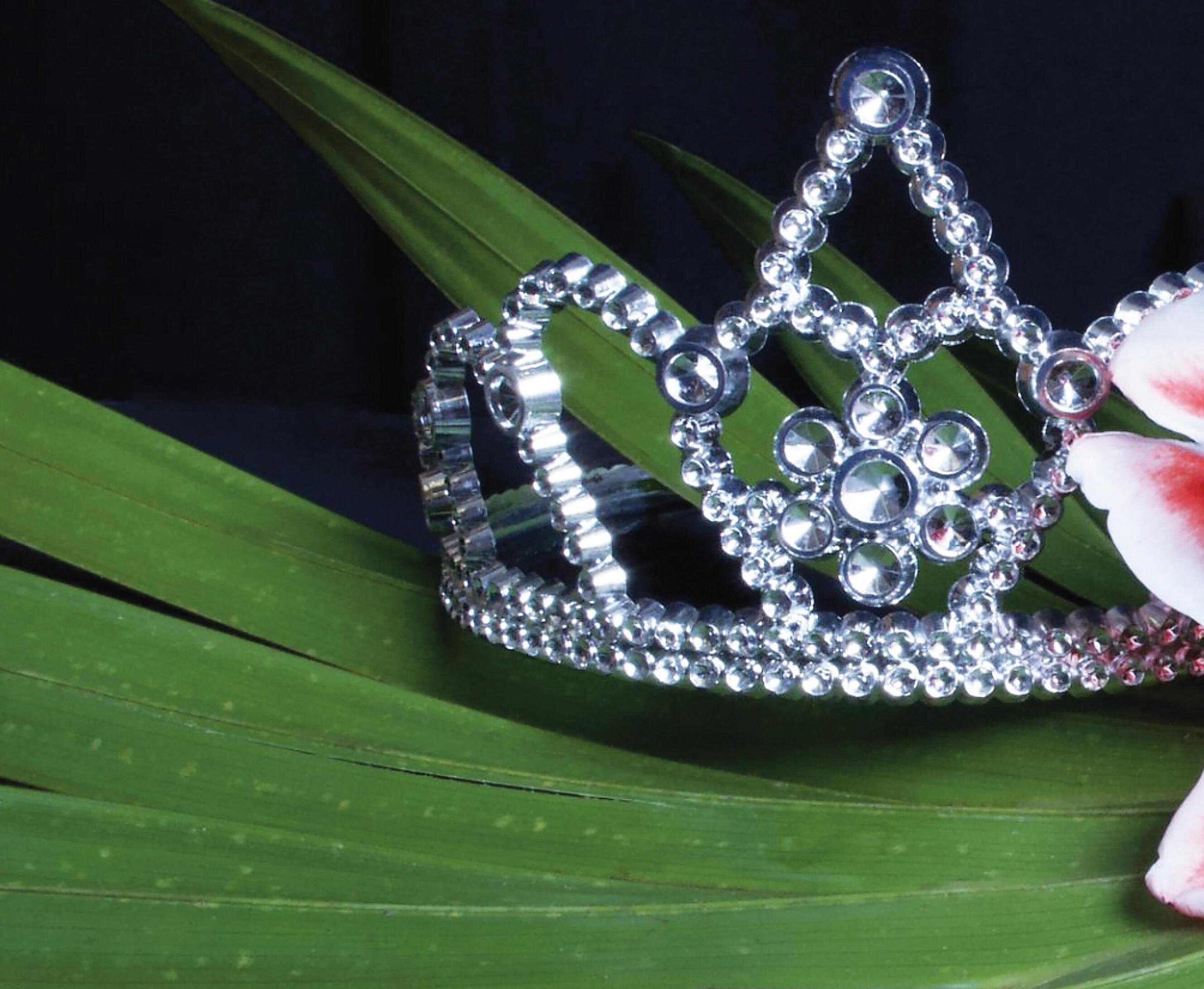 Enchanted Forest
Enchanted Forest
74
Rose Sussmann | Flower Crown, digital photograph
Caroline Serenyi
Ispend a lot of time in the woods behind my house.
When I was younger, I would imagine myself as an explorer of this pristine wilderness before returning to graham crackers and milk for a snack. During Covid especially, the woods became my refuge. I would take my old copy of The Hobbit and sit with my back to the trail and my boots in the stream. Occasionally, a neighbor would walk by and ruin the illusion. I would be sitting there, engrossed in the Battle of the five Armies, when suddenly workplace drama or barking dogs replaced the sound of water leaping over smooth rocks. Why do you have to talk on the phone when you walk out here?, I would wonder. Can’t you see this is sacred space?
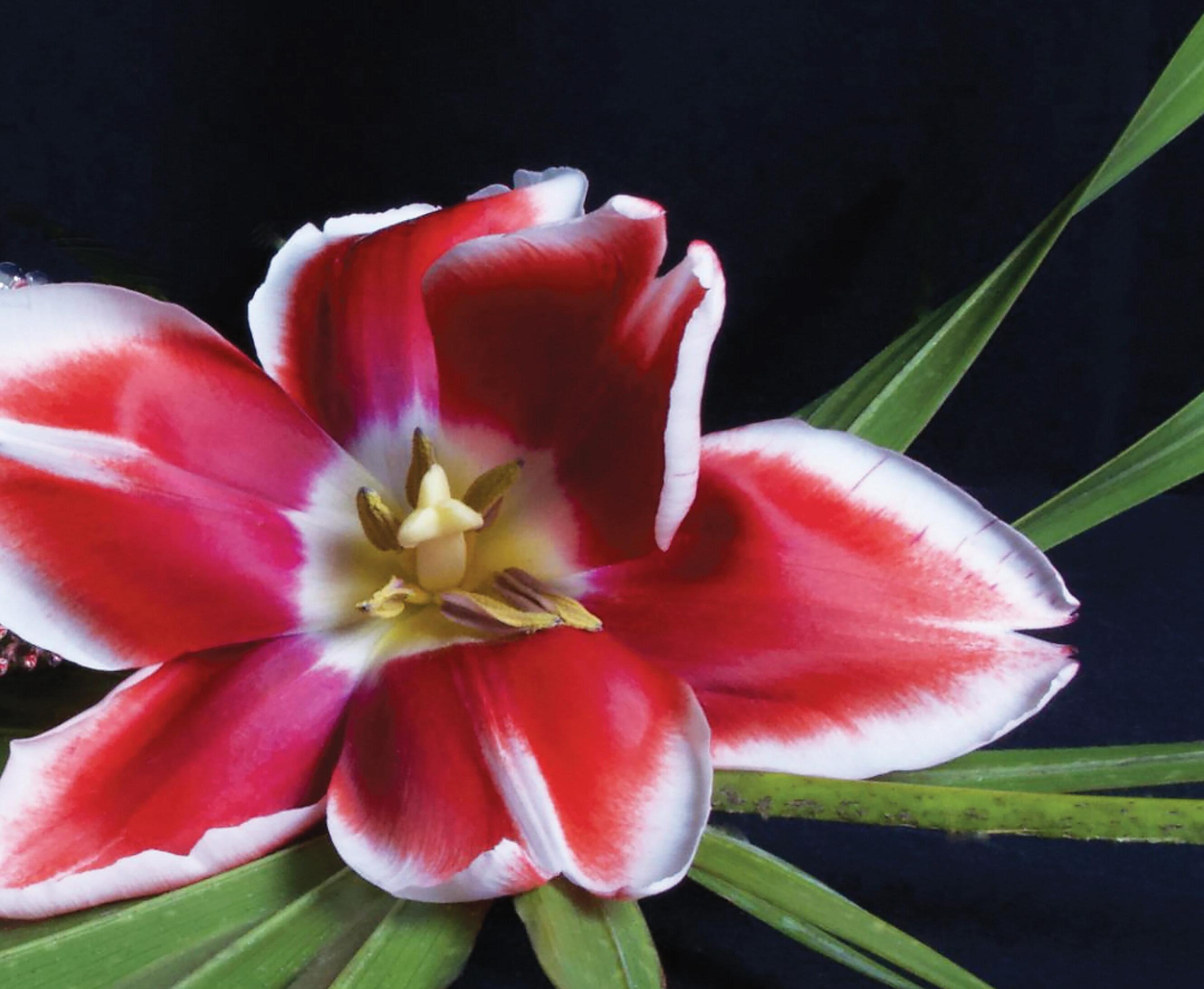
It was so easy then to ignore the obvious domesticity of that green strip of land between the houses. When the deer wouldn’t run away from me, I thought it was because of their enchanted nature, not that they’d simply grown too fat off of suburban landscaping. Not that the new things I see now keep me off the trails — I still spend as much time as I can out there. Whenever I go straight home from school, I always strap on those same boots and descend the trail behind my house. Now, though, I can see the places where the magic fades. All the litter, invasive species, piles of dog poop. The woods are still beautiful, but I see them from different eyes now. If I look closely enough, though, I can still see traces of fairy dust hidden among the weeds.
75





In melodies that echo through the night, Oh music, truly imagination’s pure delight, Each note, a whisper from the soul’s deep well, In every chord, emotions swell.
Your phrases, a remedy for hearts in pain, A solace in this world’s wild domain, In the dead of night, your magic softly glows, A symphony to ease all earthly woes.
Oh, music! Language of love’s sweet embrace, In your steady rhythm, dreams may find their place, You are the poet’s pen and the lover’s sigh, In their melodies, the deepest truths may lie.
So let us sing your praises, evermore, In music’s arms, our spirits freely soar, Dear music, your sound we will forever adore, For in your arms, our souls find home once more.
Lucia Noto
77
Sunshine Mitchell | Violin Shop, digital photograph

Worlds Apart
Caroline Serenyi
Myhands might have shaken, just a little, as I jumped down the stairs behind Lina into the city streets of Rabat. No phones, no grownups, nobody else I knew. Just the two of us and three hours until dinner.
“We should go to the mall and look out for cute boys,” she suggested when I asked what we were going to do.
I hesitated. “That sounds fun, but we actually haven’t been to the medina before. I was hoping maybe we could check that out?”
“It’s mostly tourist things, but there are a few cool things I could show you.”
We headed out of the building into the five-way intersection, each street pointing to a corner of the city I hadn’t seen. So much to see, so many ways it could go wrong. I couldn’t even cry for help if something happened. My knowledge of Arabic was as nonexistent as my knowledge of the rest of the city.

We fell into step, walking in the crosswalk towards a wall of the old city. She was easy to follow; her red shorts and sharp eyeliner stood out among the conservative dress we had seen so far.
“They told us we couldn’t bring shorts on the trip. Or tank tops. They’re really big on the cultural sensitivity at my school,” I explained.
“Oh, that’s not true,” she laughed. “You just have to be careful. I get catcalled every time I wear these when I walk alone, so it’s good that we’re together.”
I didn’t know how to respond. Luckily, she stopped a few steps later at the old wall towering above the street. She pulled out her blue Instax Mini, just like the one I have at home. “Smile!” she said, holding out the camera and looking into the reflective surface near the lens. “Ugh, we look so cute!” I shook the film a little as I watched it develop, and I had to agree. We looked adorable. Her dark curls almost filled up the frame in front of my travel-worn braids, but our grins covered the rest.
As we walked through the gate, a new array of sounds replaced the honking cars. Crowds of people swarmed


around the stalls selling fragrant spices and knock-off sneakers. There were no vehicles in the whole medina, but the occasional donkey or motor scooter blocked our passage through the narrow alleys. Lina and I walked side by side as we talked about our own worlds.
“I want to go to America,” she responded when I asked her where in the world she would want to travel. “I really want to go to Walmart. You have no idea. They don’t have Walmart in Morocco.”
The vast expanses of Walmart aisles seemed so far away as I watched the cats dart through these ancient doors. The oldest thing in my neighborhood is fifty years old, tops. Everything here had so much weight, so many years of history behind it. As I watched a motor scooter trying to navigate the maze of streets, I could understand how that weight could feel oppressive.
After a while in the medina, Lina finally dragged me to the mall, and as I expected, it was exactly like our mall at home. We got boba — caramel black tea with half sugar and low ice — and found a high-top table. From that vantage point, I could see all the life carrying on around us: the mothers with their toddlers, the gaggles of teenage boys, the fast food employees in their uniforms. By that point, we had already been talking for two hours, and I trusted Lina with anything I could
tell her. I had described plenty about American high school (“What is it actually like to have a locker?” she wondered), so I felt it was my turn to ask.
“Do you like living here?”
I remembered the warm sunlight, the perfectly manicured lawns and parks, the sound of the ocean below the old fortress from our walk through the city. At that moment, I would have dropped everything to move from my suburban neighborhood to Rabat.
She took a moment to respond, chewing her boba thoughtfully.
“Yes,” she said, “but it’s hard sometimes. You know, with all the stares from guys and things. I wish I could just wear shorts and not worry about anything. It’s almost like there are two Moroccos, the young one and the old one, and all the old people just want to stay in the past. And things are changing with this new generation, but I probably will still have to marry a guy. Even if I don’t like guys, I’ll still have to marry one for my family and my future.”
I hadn’t thought about that, how it would feel to have centuries of history weigh down your future. I could see this perfect city constricting around me, the streets closing in, the sun glaring down: a perfect city in an imperfect world.
79
Alina Ahmad| Moroccan Beach, digital photograph

What is being black?
What is being black?
Is it the way I speak?
With beautifully chopped syllables
The lingering of vowels on my tongue
That’s not the way my speech is strung
What is being black?
Is it the way I dress?
Hip hop, high-top Jordans
Waist beads, hair beads, hoop earrings
But none of those I’m wearing
What is being black?
Is it my ancestry?
Rooted in the foundations of America
Your infant, up for auction
Your back, fleshy and bloody from a whip
Your life, worse than cattle
For at least cattle didn’t understand the words they spewed
But my ancestors weren’t there in that story
Still in Nigeria,
They were away from all that’s gory
text text. text text.. text text. text text text text. text text
author
Rose Sussmann
78
| City Bus, digital photograph
Then am I nothing?
Just a person who happens to have black skin
Black on the outside, but white on the inside
Nothing black in the way I talk
Nothing black in the I dress
Nothing black about my ancestors

No, How can I not be black?
I feel the eyes at the back of my head walking into a store
The cameras, they tell me not to ignore
How can I not be black when
People still call me Sanaa or Kennedy
‘All black people are the same identity’
How can I not be black when
The pain of black slaves is still in my bones
I can hear their groans
My ancestors cry as their neighbor was taken in a slave ship
Many of whom would not survive the trip
Sample poem

What is being black?
Is a question, with an answer I still lack
All I am is a being
With an identity without your agreeing
Kayin Bejide
Leela Cohen |Harmony of Differences, stoneware and earthenware
text text text text. text text. text text. text text. text text. text text.. text text. text text text text text text. text text author
81
命運
(mingyun)

the chinese translation of the english word“fate”
The moon melted in my arms so I took her place in the sky. within my breasts, perpetually bound in service as his warm body, replete with the fragrance of promise while I sit there, still, languishing in my lithic divots,
My pools will remain full and my presence ceaseless among the callous landscape of the night while the zealous wanderer runs free,
And soon my essence transformed, an exhausted subsidiary swelling to the vast explorers of the earth. Oh, how my lusting eyes watch and prospect, wanders under my cool brilliance where my pools of tears lay to slumber. and my radiance abetting, frozen in the realm of time painted, under the nurture of the maternal moon.
Sophia
Lekeufack
Addison Burakiewicz | Golden Depths, digital
photograph
82
Scroll Members
Sofia Aquino
Betty Rose Bean
Lucy Berry
Claire Buchanan
Leela Cohen
Phoebe Cohen
Sydney Denecke
Annabelle Dennen
Eliza Dorton
Sophia Lekeufack
Alicja Mazurkiewicz
Zoe Nash
Britt Nordquist
Audrey O’Beirne
Hannah Ordan
Kate Rudge
Margaret Sussmann
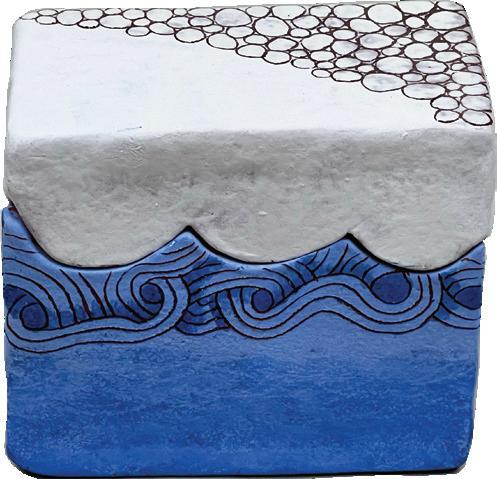


Ms. Ambria Archibald • Ms. Monica Campbell • Mr. Ben Ferry • Ms. Nandini Giridharadas • Ms. Donna Maclean • Ms. Leah Young • Ms. Melinda Salata • Mrs. Suzi Maybee Special Thanks
Scroll, the annual magazine of the Scroll Club, publishes writings and artwork submitted by students of the HoltonArms School. The club, founded in 1905 by Miss Arms, is the oldest club at the school and dedicated to “the reading, writing, and speaking of good English.” This year’s issue, printed on recyclable paper by IronMark, in Annapolis Junction, Maryland, uses Bembo Book MT Pro for text and artist and author names and Bernhard Modern for titles and headings. Scroll is designed in Adobe InDesign CCloud 2024 and produced this year in the Student Publications Room. If wishes were rainbows, we’d wish that the Publications Room had windows so we could tell if it was 12 pm or 12 am.
The Holton-Arms School does not discriminate on the basis of race, religion, national or ethnic origin, disability, or sexual orientation in the administration of its hiring, educational policy, admissions, financial aid practices, or of its athletic and other School-administered programs.
83

The Holton-Arms School 7303 River Road • Bethesda, Maryland 20817 www.holton-arms.edu 84








 Julia Ryan
Julia Ryan







 Emme Poole | Perry the Platypus, digital photograph
Emme Poole | Perry the Platypus, digital photograph

 Elise Gledhill
Addison Burakiewicz| Pink Flowers, digital photograph
Elise Gledhill
Addison Burakiewicz| Pink Flowers, digital photograph








 Addison Burakiewicz | Caged Flowers, digital photograph
Addison Burakiewicz | Caged Flowers, digital photograph





 Reese Udler | Harmony in Multiples: A Mosaic of Honeycombs,
Reese Udler | Harmony in Multiples: A Mosaic of Honeycombs,









 Janey Rollenhagen
Janey Rollenhagen










 Westerberg| Circles, porcelain
Westerberg| Circles, porcelain






















 Enchanted Forest
Enchanted Forest

















